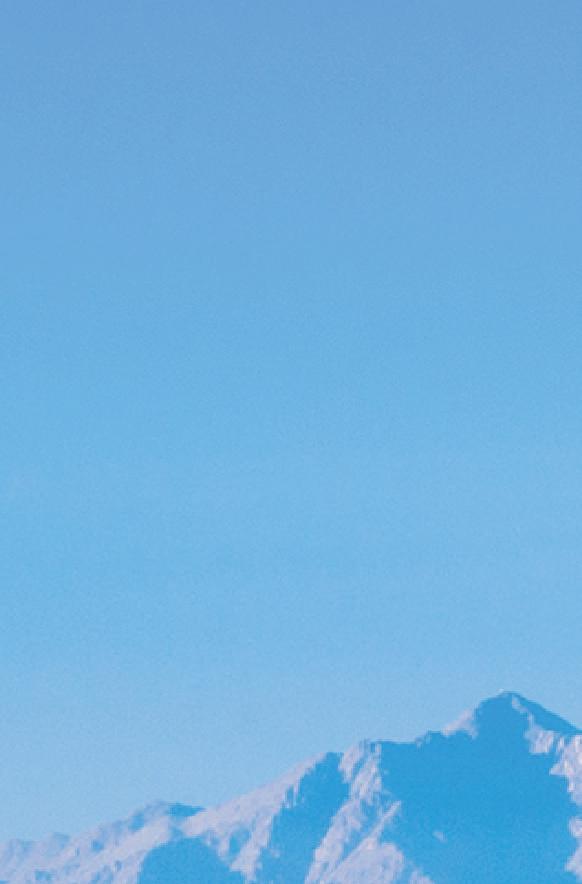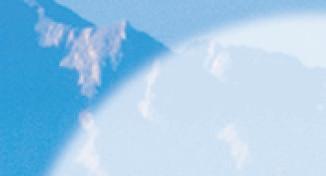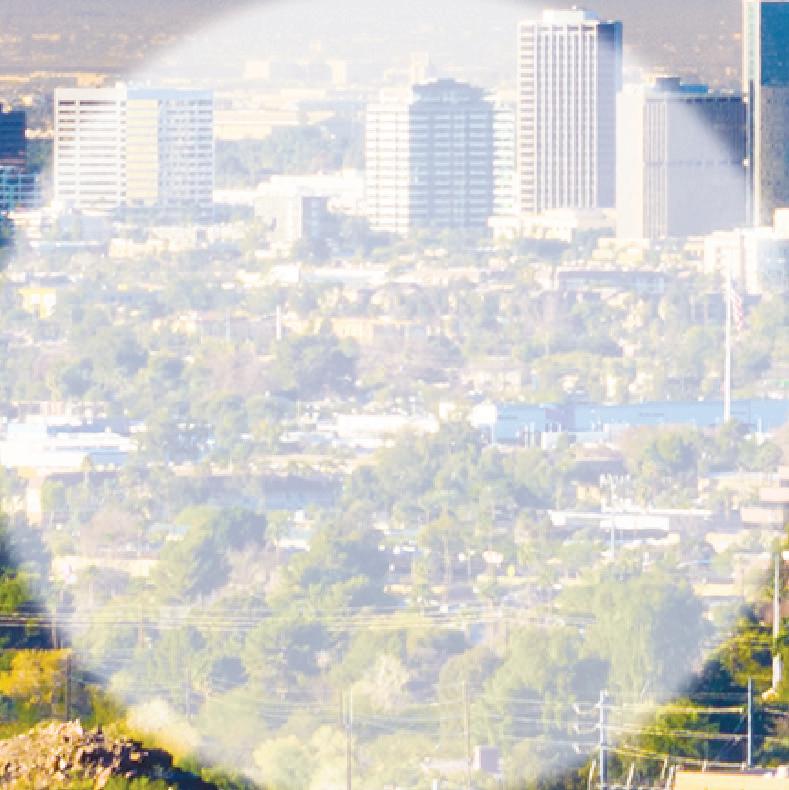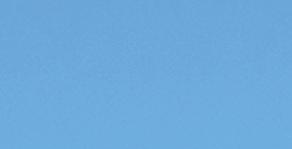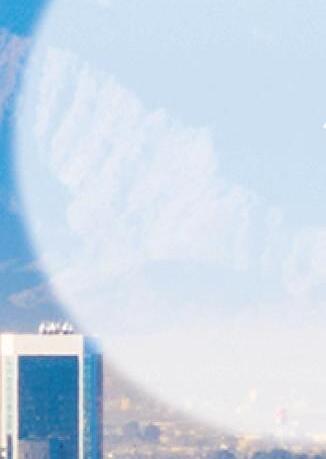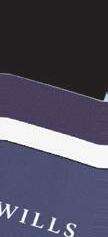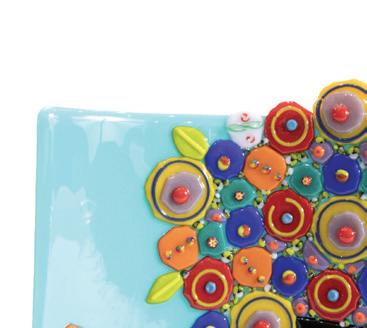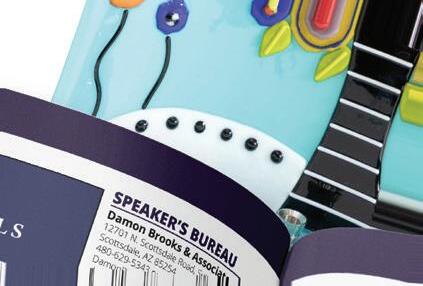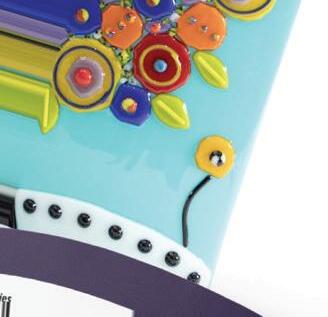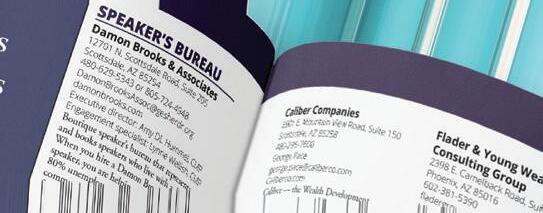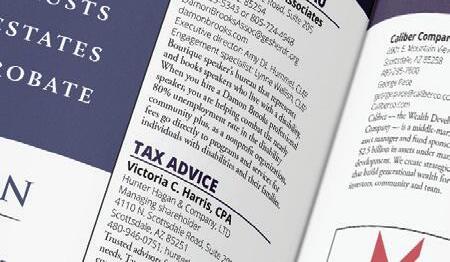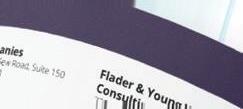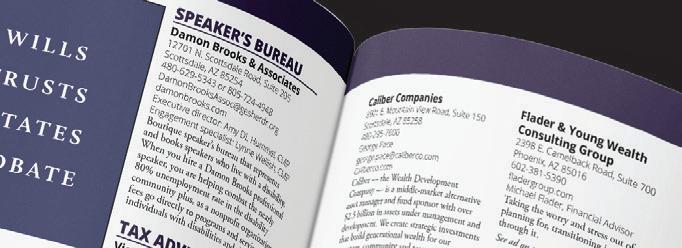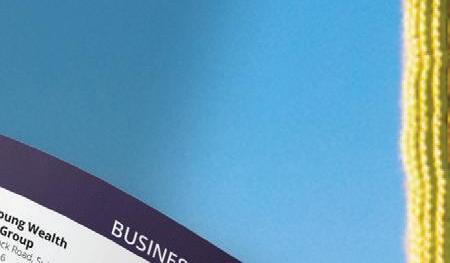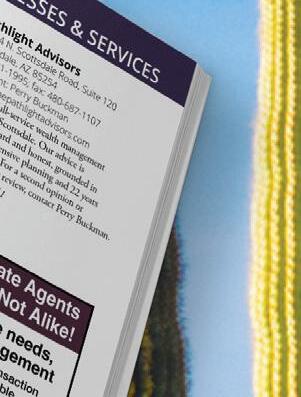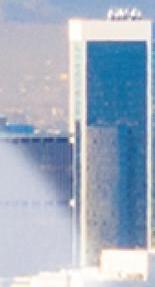
HEADLINES | 5
HELPING OTHERS
Rebbetzin Rachel Isaacs participated in a mental health fellowship offered by the Orthodox Union
DEBUT NOVEL
Tucson author Jessica Elisheva Emerson’s novel about wife swapping comes out in September




HEADLINES | 5
Rebbetzin Rachel Isaacs participated in a mental health fellowship offered by the Orthodox Union
Tucson author Jessica Elisheva Emerson’s novel about wife swapping comes out in September


SHANNON LEVITT | STAFF WRITER
Alex Shapero witnessed the emotional response of Jewish victims of domestic abuse to seeing a new mezuzah on their doorpost and immediately understood two things. The first is that a symbol as simple yet powerful as a mezuzah can demonstrate continuity and the strength of community for people fleeing abusive situations. The second is that there were probably “a lot more Jews out there in the same boat,” he told Jewish News.
Shapero is the program director for MyZuzah, a national organization that aims to unite and protect the Jewish community by providing kosher and fair-trade mezuzahs for every Jewish home worldwide.
This summer, MyZuzah partnered with Let’s End Abusive Households (LEAH), a program of Jewish Family & Children’s Services of Southern Arizona (JFCS) to benefit Jewish survivors of interpersonal and domestic violence.
In 2022, Shapero listened to two recipients tell their stories of abuse and how receiving a mezuzah from his organization made them feel the support of their religious community, and a sense of normalcy after surviving the terrible turmoil of an abusive situation. That prompted him to apply for a grant to get their kosher mezuzot into the hands of abuse survivors. It took less than 18 months to receive requests for more than 300.
“Most orgs are good at offering shelter, food and security for these survivors, but they don’t have as much
SEE MEZUZAH, PAGE 2
MALA BLOMQUIST | MANAGING EDITOR
There is no question that the Arizona Diamondbacks are having a great season. They are currently ranked second in the National League West, and the crowd of more than 29,000 on Sunday, Aug. 11 at Chase Field in Phoenix cheered them on to another victory as they won 12 to 5 over the Philadelphia Phillies.
The Jewish community also had reason to celebrate as Sunday was Jewish Community Day with the Diamondbacks, hosted by the Center for Jewish Philanthropy of Greater Phoenix (CJP) in partnership with nearly 30 local organizations. Members of the community gathered in a private area and enjoyed giveaways, sign making, crafts with PJ Library, a photo backdrop for pictures and tables where they could meet and mingle.
Jennifer Starrett, director, community engagement for CJP, said this was the organization’s second year hosting the event.
“The biggest difference between last year and this year was the community area,” she said. “Last year, our tables were spread out throughout the ballpark. This year, we were all together in one room, which really made it feel like a community. We saw so many people hanging out and enjoying the different activities we had for them.”
Sisters Leslie Beckhoff, Karen Reiss and Debbie Beckhoff enjoy attending baseball games and often go

to spring training in Surprise.
The reason for coming to the game on Sunday was twofold.
“We are here today to support the Jewish community,” said Leslie Beckhoff. “And because it’s my birthday,”
SEE DIAMONDBACKS, PAGE 3


Valley dentists share advice on keeping your pearly whites healthy. See page 13.



about her Judaism with her fellow council members and speaking out for her rights and beliefs.
SOPHIE STERN
said Jon Meyers, director of ADDPC.
in the toolbox when it comes to providing spiritual or Jewish community support,” he said. It doesn’t help that domestic abuse “is a very difficult topic and often kept in the shadows,” which means he didn’t have much data to pull from.
said Jon Meyers, director of ADDPC.
“Our hope is to create and promote opportunities for people to be embraced, become part of the community and find equitable opportunities wherever they might live,” he said.
“Our hope is to create and promote opportunities for people to be embraced, become part of the community and find equitable opportunities wherever they might live,” he said.
Irene Gefter, LEAH’s coordinator, loved the idea of partnering with MyZuzah and getting a mezuzah to survivors of abuse. While she is not a counselor, she facilitates twiceyearly workshops “to make sure the community knows that intimate violence exists in Jewish households.” Right now, she is planning one for National Domestic Violence Awareness Month in October.
Meyers first came to know Stern through her mother, Amy Silverman, who read her personal essays about raising a daughter with Down syndrome on KJZZ, National Public Radio’s Phoenix affiliate station.
For example, Rabbi Malcolm Cohen, who talked about the history of Judaism and the ways in which domestic violence has appeared, was the program’s last speaker. Providing a mezuzah to a victim will be very beneficial, Gefter told Jewish News.
January 6
Meyers first came to know Stern through her mother, Amy Silverman, who read her personal essays about raising a daughter with Down syndrome on KJZZ, National Public Radio’s Phoenix affiliate station.
Meyers was so captivated by the essays that he reached out to Silverman, and the two became friends.
Meyers was so captivated by the essays that he reached out to Silverman, and the two became friends.
That’s how Stern first learned of the open council seat, but there’s no doubt she earned her position, Meyers said.
“The symbol of a mezuzah is very powerful because it represents consistency, continuity and identity for people in a state of uncertainty,” Shapero said. “Nobody else is offering this particular spiritual support. We in the Jewish community don’t want to acknowledge we also face this issue.”
August 25
January 20
September 1

That’s how Stern first learned of the open council seat, but there’s no doubt she earned her position, Meyers said.
To become a council member, Stern had to apply and demonstrate that she had something valuable to contribute, he said.
about her Judaism with her fellow council members and speaking out for her rights and beliefs.
She already has some practice at advocating for herself.
“One time, I was in class and someone called me the R-word and I told him not to. The teacher was in the hallway and another student repeated the word,” she said. Rather than letting the situation go, she told her theater teacher, who was able to intervene.
She already has some practice at advocating for herself.
“One time, I was in class and someone called me the R-word and I told him not to. The teacher was in the hallway and another student repeated the word,” she said. Rather than letting the situation go, she told her theater teacher, who was able to intervene.
“If someone has a disability, saying the R-word is like saying the F-word,” Stern said.
“If someone has a disability, saying the R-word is like saying the F-word,” Stern said.
While performing in the musical “Hairspray,” she had another occasion to tangle with the offensive word, which appears in the script.
While performing in the musical “Hairspray,” she had another occasion to tangle with the offensive word, which appears in the script.


“That’s really bad and my friend said it on stage. I was not OK with that, so I went to the director and told her it was a bad word for people with disabilities, but she wouldn’t take it out,” Stern said.
5
January 6
February 3
January 20
February 17
August 25
The secrecy surrounding abuse in the Jewish community is what drove the creation of LEAH more than two decades ago.
September 8
1
September 15
“Women still feel a lot of pressure in this culture to keep the peace, don’t rock the boat and try to save the marriage,” Linda Behr, LEAH’s first director, told the Arizona Daily Star six months after the program’s launch.
March 10
February 3
October 6
8
March 24
February 17
March 10
March 31
March 24
April 7
March 31
April 21
October 13**
October 20
15 October 6 October 13**
November 3
20
November 10
To become a council member, Stern had to apply and demonstrate that she had something valuable to contribute, he said.
“She’s on the council because she deserves to be on the council,” he said.
realize existed. After having their eyes opened, they started the Tucson Coalition Against Jewish Domestic Abuse, the forerunner to LEAH.
“That’s really bad and my friend said it on stage. I was not OK with that, so I went to the director and told her it was a bad word for people with disabilities, but she wouldn’t take it out,” Stern said.
19
9
23* September 6 September 20
“She’s on the council because she deserves to be on the council,” he said.
Stern is creating a life and career as a member of her community, which makes her a great addition.
Behr spoke openly as a survivor of domestic abuse and told the Tucson newspaper of her own experience dealing with her ex-husband’s verbal abuse that sometimes got physical.
A lot of people at that time “were in denial,” Behr told Jewish News.
Stern is creating a life and career as a member of her community, which makes her a great addition.
“I felt so ashamed. I kept thinking that if I tried hard enough, I could somehow fix him through love and understanding,” she said. She thought she was the only Jewish woman with the experience but found out later that she was not.
April 7
May 5
April 21
May 19
She let her mother know about the conflict and they were able to convince the director of the need to remove the word from the script.
When Behr gave talks to Jewish groups around town, she said there would always be one man to stand up and say, “It doesn’t happen here.” Then a woman would stand up and say, “Yes, it does. It happened to me, my friend, my sister,” she said. Behr shared her own experience at those same talks and admitted that she only left the 25-year marriage when “I realized I couldn’t fix it.”
She let her mother know about the conflict and they were able to convince the director of the need to remove the word from the script.
23
September 27
8
October 11
3 November 10
November 17
December 1
Stern graduated from McClintock High School in Tempe last year and now attends Glendale Community College, with a focus on dance. She is a regular performer at Detour Company Theatre, a Scottsdale theatre company for adults with intellectual, developmental and physical disabilities.
Most of LEAH’s current clients are part of JFCS’ Project Safe Place Program, of whom 39.5% receive services related to domestic violence. However, if you view domestic violence as an umbrella under which people receive services for child physical abuse, neglect, sexual abuse and pornography, the percentage is 55.3%, according to Gefter.
June 9
May 5
May 19
July 14
June 9
August 4
July 14
August 18*
August 4
November 17
December 15
December 1
December 15
Stern graduated from McClintock High School in Tempe last year and now attends Glendale Community College, with a focus on dance. She is a regular performer at Detour Company Theatre, a Scottsdale theatre company for adults with intellectual, developmental and physical disabilities.
In fact, when Stern attended her first council meeting in January, she couldn’t wait to tell people of her involvement with Detour and share information about its upcoming shows.
Tucson Hadassah leaders were the first to propose an organized response to domestic abuse in the Tucson Jewish community. In 1998, Hadassah’s Shelly Lipowich attended a conference with five other Arizona women and learned about domestic abuse in the Jewish community, which they didn’t
August 18*
“My friend Al was next to me when I told the director and he gave me the biggest hug ever and said that he loved me so much,” Stern said. Sadly, Al died in a car crash on Oct. 24, 2021.
After introducing herself to one rabbi who told her there was no such problem in his congregation, she responded that it was strange because two of her LEAH clients were members of his congregation.
In fact, when Stern attended her first council meeting in January, she couldn’t wait to tell people of her involvement with Detour and share information about its upcoming shows.
Heart Can’t Even Believe It: A Story of Science, Love and Down Syndrome,” Silverman’s book about her daughter. When Gesher’s speakers’ bureau, Damon Brooks & Associates, was asked to find a speaker about Down syndrome for an event this spring, Hummell first asked Silverman to speak, thinking Stern might be too young.
22
October 18**
Heart Can’t Even Believe It: A Story of Science, Love and Down Syndrome,” Silverman’s book about her daughter. When Gesher’s speakers’ bureau, Damon Brooks & Associates, was asked to find a speaker about Down syndrome for an event this spring, Hummell first asked Silverman to speak, thinking Stern might be too young.
They decided instead that Stern should tell her own story; it’s a real bonus that she is not afraid of public speaking.
5
October 25
“That was hard; it’s very hard to get emotions out and I was very, very upset,” she said.
“My friend Al was next to me when I told the director and he gave me the biggest hug ever and said that he loved me so much,” Stern said. Sadly, Al died in a car crash on Oct. 24, 2021.
“That was hard; it’s very hard to get emotions out and I was very, very upset,” she said.
On the recent anniversary of his death, Stern made a cake and took it to the crash site.
Most rabbis were soon open to hearing what she had to say and even championing LEAH. Eventually, they all came around, she said.
“There’s no question that she is going to thrive,” Meyers said. “She’s very gregarious and passionate about the things that matter to her.”
12
November 8
They decided instead that Stern should tell her own story; it’s a real bonus that she is not afraid of public speaking.
“It’s not the same when someone tries to tell a person’s story for them,” Hummell said.
19
10
November 15
November 22
“It’s not the same when someone tries to tell a person’s story for them,” Hummell said.
24
December 6
“I don’t know how I did it without crying. I’m so proud of myself,” she said.
On the recent anniversary of his death, Stern made a cake and took it to the crash site.
Behr is still a member of LEAH’s board and said the big difference between now and when it first started is that people are aware of the problem. JN
14
12
“I don’t know how I did it without crying. I’m so proud of myself,” she said.
Amy Hummell, executive director of Gesher Disability Resources, agreed that Stern is a good fit for ADDPC because of her ability to self-advocate.
Additionally, helping people with disabilities find jobs was one of the reasons for acquiring the bureau. Unemployment in the disability community is upwards of 75% and of that percentage, 75% are ready, willing and able to work — but haven’t been given the opportunity, Hummell said.
26
December 20 *Best of Magazine **Annual Directory
9
“There’s no question that she is going to thrive,” Meyers said. “She’s very gregarious and passionate about the things that matter to her.”
Stern looks forward to sharing insights
For more information on MyZuzah, visit myzuzah.org; for LEAH, visit jfcstucson. org/services/counseling/counseling-for-victims-of-domestic-violence.
Stern looks forward to sharing insights
Hummell co-hosted a book event with Meyers a few years ago for “My
Amy Hummell, executive director of Gesher Disability Resources, agreed that Stern is a good fit for ADDPC because of her ability to self-advocate.
Hummell co-hosted a book event with Meyers a few years ago for “My
Phone: 602.870.9470 | Fax: 602.870.0426 | editor@jewishaz.com | advertising@jewishaz.com subscriptions@jewishaz.com | www.jewishaz.com
602.870.9470 | editor@jewishaz.com | advertising@jewishaz.com subscriptions@jewishaz.com | www.jewishaz.com
PUBLISHER
PUBLISHER Jewish Community Foundation of Greater Phoenix
12701 N. Scottsdale Road, Suite 201, Scottsdale, AZ 85254 Phone: 602.870.9470 | Fax: 602.870.0426 | editor@jewishaz.com | advertising@jewishaz.com subscriptions@jewishaz.com | www.jewishaz.com
Jewish Community Foundation of Greater Phoenix
PUBLISHER
ASSOCIATE PUBLISHER Rich Solomon | 602.639.5861 rsolomon@jewishaz.com
SENIOR ACCOUNT EXECUTIVE Jodi Lipson | 602.639.5866 jlipson@jewishaz.com
ADVERTISING SALES CONSULTANT Jodi Lipson | 602.639.5866 jlipson@jewishaz.com
Additionally, helping people with disabilities find jobs was one of the reasons for acquiring the bureau. Unemployment in the disability community is upwards of 75% and of that percentage, 75% are ready, willing and able to work — but haven’t been given the opportunity, Hummell said.
“People have it in them to speak up but don’t know how, and often they’re not cheered on. Sophie has family support
“People have it in them to speak up but don’t know how, and often they’re not cheered on. Sophie has family support
GENERAL MANAGER Rich Solomon | 602.639.5861 rsolomon@jewishaz.com
Jewish Community Foundation of Greater Phoenix
GENERAL MANAGER Rich Solomon | 602.639.5861 rsolomon@jewishaz.com
MANAGING EDITOR Mala Blomquist | 602.639.5855 mblomquist@jewishaz.com
MANAGING EDITOR Mala Blomquist | 602.639.5855 mblomquist@jewishaz.com
MANAGING EDITOR Mala Blomquist | 602.639.5855 mblomquist@jewishaz.com
STAFF WRITER Shannon Levitt | 602.639.5854 slevitt@jewishaz.com
STAFF WRITER Shannon Levitt | 602.639.5854 slevitt@jewishaz.com
STAFF WRITER
Shannon Levitt | 602.639.5854 slevitt@jewishaz.com
ADVERTISING SALES CONSULTANT Jodi Lipson | 602.639.5866 jlipson@jewishaz.com
SUBSCRIPTIONS 602.870.9470 x 1 subscriptions@jewishaz.com
SUBSCRIPTIONS 602.870.9470 x 1 subscriptions@jewishaz.com
GRAPHIC DESIGNER Ricki Urban | 602.870.9470 X 2 advertising@jewishaz.com
SUBSCRIPTIONS 602.870.9470 x 1 subscriptions@jewishaz.com
GRAPHIC DESIGNER Ebony Brown | 410.902.2333 ads_phoenixjn@midatlanticmedia.com
GRAPHIC DESIGNER Ebony Brown | 410.902.2333 ads_phoenixjn@midatlanticmedia.com

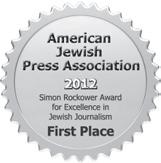

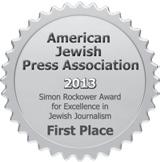


added Debbie Beckhoff.
It was the first time attending a Diamondbacks game for Dina Kalish, a first grader at Pardes Jewish Day School. Although her father, Howard, admitted to being the one most excited about being there.
It was also the first time Jake Bennett brought his children Lev, 7, and Miryam, a teenager, to a Diamondbacks game. “To see the little one get excited is what I’m enjoying,” he said. They were joined by other members of the family including Bennett’s in-laws Ilene and Harvey Magaziner. Bennet also took time to don tefillin with Chabad of Downtown Phoenix Rabbi Dovber Dechter.
Julie Witenstein, owner of Arizona Sunrays Gymnastics & Dance Center, took a break from watching Olympic coverage (gold-medalist Jade Carey used to train at their gym) and came to the game with her husband, Dan, and three adult children. “We have had season tickets since the Diamondbacks started in the Valley,” she said.
Nancy Trae admitted they don’t usually come to Chase Field to watch baseball but came for the community event. Her son had a Diamondbacks-themed bar mitzvah, “He turns 38 tomorrow,” she said, laughing.
Tammi Goldberg brought her two sons and said it was the first game she had attended post-COVID. Although she admitted to also being a Phillies fan, and sheepishly showed a hat for the rival team in her clear plastic bag, she also picked up the hat that said “D-Backs” in Hebrew.
The Hebrew baseball hat was a special giveaway for the more than 600 community members who purchased a ticket for the special event and a big draw, but not just for members of the Jewish community.
Jay Coles, a congregant of Compass Christian Church, a non-denominational church in Chandler, who is a season-ticket


holder, was inquiring where he could pick up the hat.
“My pastor, Roger Storms, asked me if I would get him the hat with the Hebrew writing,” he said.
Before the start of the game, the community watched local 90-year-old Holocaust survivor Herbert Marx throw out the ceremonial first pitch. Marx was 6 years old when his family was taken to Gurs concentration camp in France. He would eventually escape with the help of the French Resistance.
Marx is a sports fan and has dedicated 30 years as an international soccer referee and remains a proud member of both the German Soccer Federation and the United States Soccer Federation.
The pitch was followed by the Jewish Community Youth Choir, led by Cantor Ross Wolman of Temple Chai in Phoenix, who sang the National Anthem. The choir was made up of second to eighth graders from congregations across the Valley.
This choir also sang the anthem in 2023, and Wolman said he had brought Temple Chai’s youth choir to perform at the Phoenix Suns Jewish Heritage Game, which usually occurs during or near Chanukah.
Wolman said he emailed prep recordings to the kids for rehearsing at home, and then they practiced together the week before the event.
He gave the choir some advice to calm their nerves before the performance, “Head up and hearts out,” he told them. “They can’t play baseball without hearing us first. You can listen to your neighbor and watch me if you get lost.”
Starrett said that she received great feedback from the community members who attended, and hopes that the Jewish Community Day continues to grow and attract more people.
She hinted that next year the giveaway will most likely be a shirt and that the CJP will hold a contest for kids between the ages of 6 and 10 for a chance to participate in the Hot Dog Derby, where three kids don the costumes representing ketchup, relish and mustard and go down onto the field for a pretend race.
“It truly was a community-supported event,” she said. “From Cantor Ross Wolman leading the youth choir of kids from all across the Valley in singing the national anthem to our community partners, including Phoenix Holocaust Association who helped connect us with survivor Herbert Marx, who threw the ceremonial first pitch — it was truly wonderful to see so many organizations come together for the day.” JN
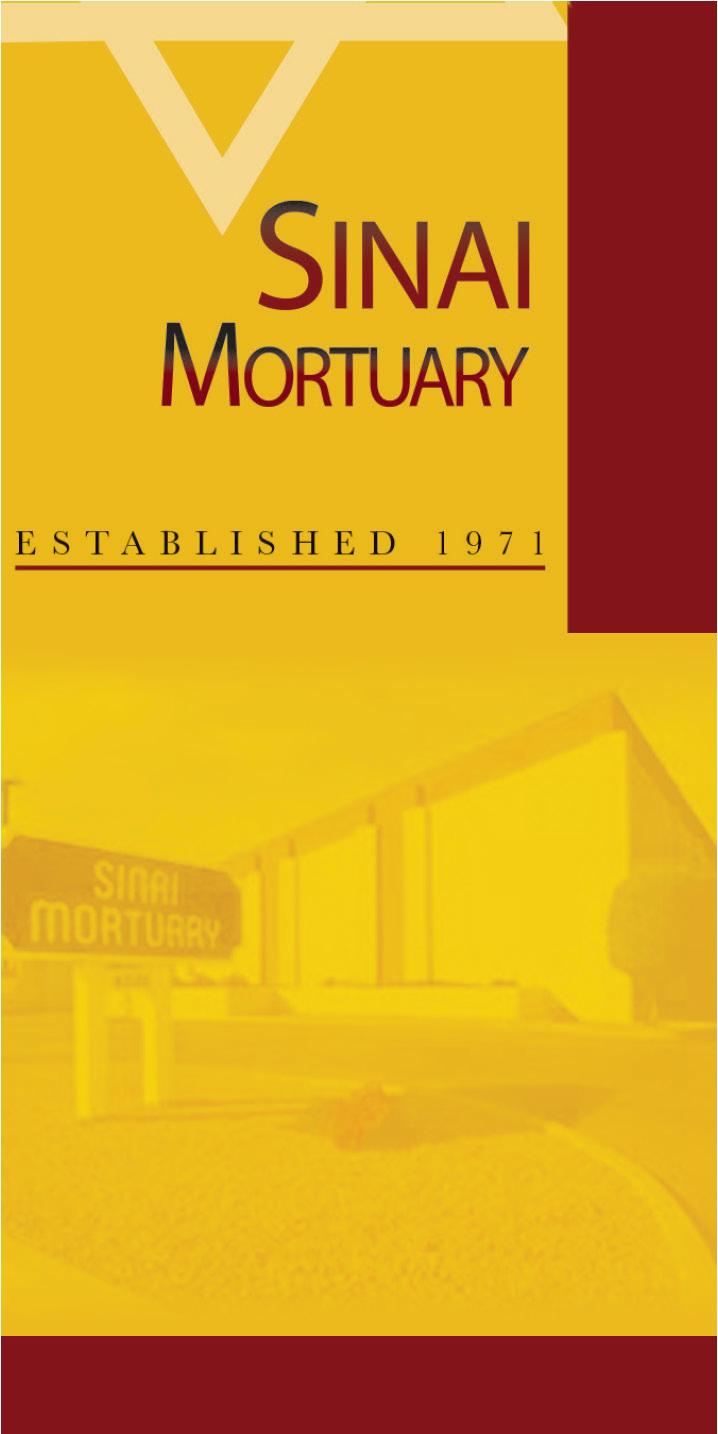


SHANNON LEVITT | STAFF WRITER
Though Heather Lennon is not a native Phoenician, much of her life’s work has been devoted to restoring the historic nature of the city she’s come to love. Sitting at her desk in front of a large and colorful mural in her office headquartered amid the hustle and bustle of Roosevelt Row Arts District, Lennon smiles as she talks about certain buildings she’s helped bring back to life, as well as the people and businesses that now populate them.
Lennon helps old buildings find new lives through “adaptive reuse,” a term she defines as taking a property that is no longer functional and “making it into something that is optimally utilized” while simultaneously preserving its architectural and cultural heritage.
“I am passionate about historic buildings and am trying to save the history of Phoenix, one old building at a time,” she told Jewish News.
Her passion has caught the eye of others who have dedicated themselves to downtown Phoenix. Lennon won last year’s Phoenix Community Alliance’s Center City Award, which is “a really big deal,” according to Mo Stein, one of the Arizona Jews behind the Alliance’s creation. “The who’s who of downtown have received that award over the last 25 years, and Heather won for her work in preservation and historic projects.”
Stein admires Lennon’s purposefulness and the fact that “she does really good work” while not showing off. The big companies get a lot of notice, but Stein maintained that “the real action and advocacy” is with the younger and smaller businesses and people. “They’re going out there and making a difference shoulder to shoulder with the pillars of the community.”
History and heritage are not things that Lennon, a “100%” Ashkenazi Jew, takes
Arizona Public Service Company has F/T IT Integration Engineer/Architect position in Phoenix, AZ. Dvlp/Mntn/ Soclize Intgratn strtgy & roadmap for Intgratn Stndrds & Govnance framewk; Dvlp & mntn APS Intgratn tech stack & Refrnce Archtctr; Work w/ mngrs across IT to dvlp intgratn strtgy for spprtd apps; Prtnr strtgic IT prjcts RFP thru release; Advise/Assist IT dvlprs/senior resources re impact anlysis, test spprt. Requires: BS in IT, Electrnic Eng, Comp Eng, Comp Sci or rltd + 5 yrs exp. Drug test, Bkgrd check. Flex hybrid sched in-office 2 days/ mo. Must reside w/in normal commuting dist of Phoenix HQ office. Email resume to TalentAcquisition@apsc.com, Incl Job Code JN9810
lightly. For example, in a 1953 metal warehouse building she’s working on now in Phoenix’s Central Park neighborhood, a kosher commissary kitchen covering about 3,000 square feet will be one of the anchor businesses.
“As a Jew, it’s an amazing thing to be able to provide. I’m not kosher, but there is no equity in this market because it’s very difficult if you are kosher to have your needs accommodated,” she said.
It’s the kind of dilemma she believes her business philosophy can address.
“I feel so strongly that the adaptive-reuse process is how neighborhoods and cities evolve, and it’s very important to do it in a way that is not tone deaf,” she said.
Extended family photos line the wall of her office and she credits the “entrepreneurs on both sides” with her innate understanding that she would always be her own boss. Still, she evades easy categorization because she’s never worn only one hat in the business world, so to speak.
Lennon grew up between New York and Las Vegas and attended the University of Arizona in Tucson for graduate school, where she studied consumer behavior and retail store design. She took a job working for an entrepreneur in Phoenix but quickly “decided to dip my toe out on my own and never looked back.”
She started a design firm, focusing on retail property “with a smattering of residential,” and soon her clients were asking her to take over more and more of the work, which led her to get a general contractor’s license. Across the country, women account for only about 10% of the construction business, according to The National Association of Women in Construction. Thus, Lennon is also something of a unicorn. (A unicorn is the logo for two of her current businesses.)
“I kept my head down and continued working and learning,” she said of her unique path. “The only way to amass expertise is by doing it.”
When she felt she had the requisite contractor experience, she started a development company, then another one and other businesses, including a cigar business.
“I realized that I had a passion for creating things that created jobs,” she said.
Women have a bigger piece of the pie in real estate development, but the percentage is still only about 35%, which might be even less in Phoenix. Nationally, women-owned businesses increased by 17% last year, but only by 14% in Phoenix, and most of those businesses are in consulting or coaching, according to Axios.
That doesn’t come as a big surprise to Lennon.
“I don’t know a single woman who’s a general contractor and a developer. I know me. That has to change,” she said.
For years, Lennon went to industry shows and the only other women there were spokesmodels. She got used to inspectors entering her jobsite who assumed that “the oldest white man there” was the general contractor.
“People would say, ‘No. It’s the curlyhaired lady over there pushing a broom.’”
Now, she makes a point of speaking to groups of young women so they know construction and development are great fields in which to work. The only caveat, for the time being at least, is that women need a thick skin. Luckily, Lennon does.
“I don’t know why all my businesses are in male-dominated industries, but I function well in that space.” Stein agreed that “she’s held her own.”
No matter the industry, she incorporates her philosophy of being of service to the

downtown Phoenix neighborhoods, always south of the Footprint Center. For example, her cigar business offers the only humidor downtown, and people buy cigars to take to one of several other nearby businesses that welcome them.
“It’s a really cool thing to help those businesses and they, in turn, welcome our customers; it’s just a symbiotic, really cool thing,” she said.
With her other projects, “I want to tell the story of these buildings, so people understand their histories,” she said.
To illustrate her point, Lennon described one of her old downtown buildings, which held a 12,000-square-foot room built with bow truss ceilings — “huge ceilings that are bowed at the top” — and clerestory windows lining the top of the walls. A cable pulley system for opening the out-of-reach windows still works. In 1918, the room hosted a linen and laundry business and the windows were the only source of air circulation.

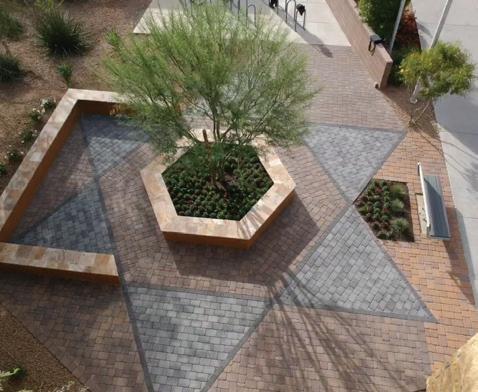

“Now that’s hard work. That is brown women doing everything they need to do to support their families,” she said. “I wanted to honor their story — one that needs to be told.”
She feels the energetic residue of their effort and in adapting and reusing the space rather than tearing it down and replacing it, Lennon is honoring the people who lived, worked, struggled and left their mark in an earlier iteration of Phoenix.
“Part of Jewish tradition is to be of service, to be of help; I have such great pride in that culture, my culture,” she said. JN
SHANNON LEVITT | STAFF WRITER
Rebbetzin Rachel Isaacs is the first to say she is not a trained therapist. Still, her opinion is sought out and relied upon by some members of Phoenix’s Beth Joseph Congregation, where her husband is the senior rabbi.
“Tragedies happen. Issues come up. People are so complex with so many variables and sometimes their problems are far reaching, such as when a mom or a teacher is struggling — it has a lot of ripple effects,” she told Jewish News.
In the past, people talked to her about personal and sometimes difficult issues, especially women — even in casual conversation — and she didn’t always have the resources to direct them to.
“I didn’t know who to turn to. I didn’t know how to properly navigate the scene,” she said.
Thus, when she learned about a mental health fellowship offered by the Orthodox Union last year, she jumped at the chance to participate.
The Orthodox Union’s Women’s Initiative (OUWI) annual Foundations of Community Mental Health Support Fellowship is a 10-week program geared towards rebbetzins, kallah teachers (those who teach Jewish purity laws), Jewish school principals and teachers. The fellowship’s goal is to train the Jewish community’s “first responders” to identify and support community members struggling with mental health issues. Because they are in regular contact with their community members, these women are often called on to address personal crises and recognize when things require the assistance of a mental health professional.
Isaacs, who completed the fellowship in 2023, felt it prepared her “to connect the dots” for people by providing those in pain with the resources they need.
She was able to put some of what she learned into practice when Oct. 7 happened, not long after her fellowship ended. Isaacs watched as members of her community were traumatized and some were unable to function.
She found a local psychiatrist, who agreed to come to Beth Joseph and speak to the community only a few weeks after the Hamas attack on Israel. The speaker was able to hone in on ways to know if an individual should seek professional and individual help.
Isaacs said she might have come to the decision to organize such a meeting eventually, but the fellowship helped her to see the need for it sooner.
“The feedback was incredible and it was

appreciated,” she said.
The fellowship’s virtual sessions were led by licensed clinical social workers, therapists, psychologists and psychotherapists, many of whom are university professors and directors of mental health programs and who also serve as community rebbetzins.
Following an hour-long presentation on a mental health-related subject, the professionals moderated small group discussions where fellows could unpack the presentation and tackle issues relevant to their respective communities, according to a OUWI press release.
One goal of the fellowship was to introduce educators to broad mental health concepts and help them develop their intuition, recognize when, and how, to support community members alongside referrals to field professionals and create a network to consult with one another longterm. The program provided fellows with a framework, a vocabulary and a safe space to navigate personal issues with professionals, yet it did not train participants to practice as clinicians or coaches.
“We now have access to resources and a better awareness of who needs to be referred and who just needs a friend,” Isaacs said. “We’re not professional therapists.”
Besides the two-hour weekly lessons and wide reading the fellowship required, Isaacs found the work she and her cohort did with Dr. Jessica Kalmar, a rebbetzin and professional psychologist, was some of the most informative and meaningful of the program. Even after the coursework ended, Kalmar kept in touch with the fellows once a month and “understood what we were going through,” Isaacs said.
Isaacs met the rest of her cohort’s fellows at the OUWI annual conference in New York in 2023. Before the fellowship they were women who were unlikely to have met otherwise, but soon they became “bonded, close like childhood friends, like a sisterhood. It was hard to say goodbye,” she said.
That bond has remained and when this year’s conference in New Jersey took place, nearly every member of the 2023 cohort was there. Much of the focus was on Oct. 7 and the emotional trauma it unleashed on the Jewish community.
Resilience counselor Esther Marcus, founder of the Sdot Negev Regional Council, spoke about her experience that terrible morning and told attendees how she fielded frantic calls to her center’s hotline, trying to be of assistance, while she was in hiding for her life in a safe room on Kibbutz Alumim.
“Marcus was unreal, just incredible,”
Isaacs said. In fact, listening to her speak was a small taste of the mission trip Isaacs was invited on to Israel in November by OUWI leaders. She and other rebbetzins were asked to go to Israel, meet with people and hear their stories firsthand.
Isaacs often finds herself asking what she can do to help, and Marcus stressed how important it is to listen to people talk. Just listening to people can be very therapeutic for them.
“Being there and saying I care enough to listen to your story, really helps them heal,” Marcus shared.
While some rebbetzin have had some preparation for their unique role in the community, Isaacs had a path and an established career as a pharmaceutical microbiologist. She is also the mother of five children and always puts family first. The fellowship offered her the opportunity to have some specific training for a role she hadn’t planned on.
“I did my best under the circumstances and that had to be good enough, but I often felt that my best just wasn’t enough,” she said.
The fellowship has given her the preparation and knowledge she needs to get people appropriate help and resources.
“The monthly meetings were a tremendous source of inspiration and strength,” she said. “I felt that whatever came my way, I had strong shoulders to lean on. I was even more grateful for the knowledge, connections and resources I cultivated from the fellowship when October 7 hit and our community was overwhelmed with the tragic war in Israel. The material and skills I acquired on the fellowship helped me to plan meaningful Israel-related events and to be a little more prepared to handle the unchartered territory.” JN


SHANNON LEVITT | STAFF WRITER
Terra Schaad spent the last 10 days of March in Israel helping Jews, traumatized by the terrorist attack on Oct. 7, begin to heal their emotional pain — and she did it with the assistance of a few horses.
Schaad is the founder of Hunkapi Farms in Scottsdale, which offers programs in equine therapy and somatic experiencing — a bodymind therapy specifically focused on healing trauma by drawing clients’ attention to their bodies — and has become known in the local Jewish community, particularly among Israelis, for welcoming those who have spent the last eight months reeling from the horror and aftermath of Oct. 7.
Hunkapi’s mission is “to teach the world to fear less and love more,” and Schaad has spent her career developing therapeutic programs to do exactly that for both adults and children dealing with a wide array of emotional and/or physical challenges. The thing that makes Schaad stand out from most other therapists is that she involves horses, creatures that she credits with saving
her life, in the healing process.
“Horses saved my life, so I really wanted to give kids the opportunity to experience that. Over time, my ideas have evolved and grown, as I have, to expand to adults and diverse populations,” Schaad told Jewish News.
Before that infamous day in October, Schaad had never worked with active-duty soldiers. However, when she started working with an Israeli Defense Forces soldier with Post Traumatic Stress Disorder (PTSD), “I was really scrambling because I’m not Jewish. I just knew that I needed to help take care of her somehow, but I didn’t know about any Jewish resources,” she said.
One person who introduced her to several community members was Amir Glogau, an Israeli expat who has worked in the mental health space for many years and is a friend of a Hunkapi board member. Through Glogau and others, Schaad learned about some of the stress and fear Israelis and Jews have been dealing with, and, in January, she offered up

her farm for a day of stress reduction, healing and somatic experiencing.
As she met more people in the local Jewish community, she wanted to do more to help, and Glogau introduced her to Danny’s Farm in Shoham, Israel, which offers holistic and animal-assisted therapy to veterans.
“Danny has built an incredible farm and has done a lot of incredible work but didn’t have the methodology that Terra brings with her. It made sense for them to learn her method and teach others and since her trip, it’s already spreading to other farms in Israel,” Glogau told Jewish News.
He called Schaad’s combination of equine therapy and somatic experiencing “really unique and powerful when it comes to dealing with trauma.”
The Israeli therapists told Schaad, “We didn’t know that we needed this until you got here,” she said.
Her path to this work was a circuitous one. As a child, a neighbor offered Schaad and other low-income children the opportunity to claim one of his horses by working on his farm. That experience turned her into a horsewoman for life. She initially went to college to become a horse veterinarian because it seemed the best way to have a career involving horses. However, after completing her undergraduate degree, she got an offer to move to the desert and help launch an equine therapy program at Arizona State University.
The Center for Jewish Philanthropy is now accepting applications for programs and services that benefit the Greater Phoenix Jewish community. Funding for Israel and Overseas is by invitation only.
Visit https://phoenixcjp.org/what-we-do/cjp-funding. Please read the 2025 Community Impact Funding Guide prior to applying as there are several changes this year.
Questions or to discuss funding ideas, contact Sheryl Quen, Vice President, Community Impact squen@phoenixcjp.org.
phoenixcjp.org ● 480.699.1717
“I didn’t even know equine therapy existed, but I was a horse person through and through. It turned out I had a knack for working with children with autism because it requires the same skills as working with a horse: reading emotions and nonverbal cues and making them feel safe and comfortable. Because I had worked with horses, I understood what to do intuitively,” she said.
She signed up for counseling classes and enrolled in a master’s program designed around her work with equine therapy. The curriculum she developed eventually grew into Hunkapi. She chose the name based on the Native American concept of the interrelatedness of humanity and nature. It’s a Lakota word meaning “we are all related.”
Schaad and her team typically use one horse for every two clients. She helps people with developmental disabilities, emotional disorders and addiction. While working in addiction recovery homes, she learned about somatic experiencing and spent three years in a training program to incorporate
this trauma therapy into her established programs.
Somatic experiencing starts with the idea that the body stores the memories of everything it’s been through, including the traumatic experiences. Because the body is also designed to protect itself, sometimes the brain hides memories that could harm it but they often manifest physically. Thus, Schaad is always watching body language because it can give her clues to trauma in a client’s background.
For example, when she was in Israel one man’s hand moved strangely as she approached him. “I said, ‘It looks like your hand needs to release some stuff.’” She asked him to move his thumb and he looked at her amazed. He told her he had just come back from Gaza, where a rocket-propelled grenade hit his hand. She could see no visible scar, but “his hand was turning into a fist. I was just watching his body respond to stress and that told me that there was a story behind his hand movements.”
Schaad said this is why horses, “completely somatic beings,” are so useful in this work. They instinctively release trauma because their response to it is primal, whereas people try to rationalize it. If someone is in an abusive relationship, they will often excuse the abuse at the hands of their loved one, usually leading to further violence. A horse, however, will simply run from its abuser.
“Horses don’t think, ‘You’re my dad, so you don’t mean to hurt me,’ they just kick or strike out or run away from the situation,” Schaad explained. If she claps her hands or makes a threatening movement toward a horse it runs away to protect itself, an appropriate response, then observes her before coming back.
“This shows people a normalized activation of fight or flight. Then, I show them how to deactivate that by observing the horses. It helps get all the shame and guilt off the table because that’s really hard to work through,” she said.
During her March trip, her first to Israel, she worked with about 35 people and didn’t have time to go through the entire curriculum. She hopes to make a return trip and continues to work with Jews and Israelis locally.
“There’s just so much work to do,” she said. JN
For more information, visit hunkapi.org.
SHANNON LEVITT | STAFF WRITER
Not every Jew in Greater Phoenix has the opportunity to travel to Israel to get to know the country firsthand. Happily, the Center for Jewish Philanthropy of Greater Phoenix (CJP) and Pardes Jewish Day School have partnered to bring a little bit of Israel to town in the form of a shlichah (emissary).
With the assistance of the Jewish Agency for Israel, a nonprofit organization whose mission since its founding in 1929 has been “to secure a vibrant Jewish future for generations to come,” CJP and Pardes have arranged for a shlichah to be based in the Valley for the enhancement of the Jewish community’s connection to Israel and its people.
The Jewish Agency’s shlichim are selectively chosen and extensively trained to “engage with Jewish and non-Jewish people about Israel, teach Jewish heritage and speak about issues of national and religious identity” in their adopted communities.
“The benefit of having a shlichah is that it’s someone whose whole life is about Israel,” Pardes Head of School Michelle Bernat told Jewish News. “Shlichim are immersed in the country’s history as well as current events, and can bridge that gap for folks who haven’t had the opportunity to go or who really want to continue their connection to Israel. It’s an important way of embracing Israel.”
CJP CEO Richard Kasper echoed that sentiment.
“Our community shlichut program will help bring Jewish history, Israeli culture and traditions to Greater Phoenix. The program will be a resource for building Jewish pride and strengthening Jewish identity — especially for those who haven’t had the privilege of visiting or living in Israel,” he told Jewish News in an email.
It’s personal for Rachel Hoffer, CJP board chair. Growing up in Florida, the shlichah she knew was an important part of her community.
“I have such fond and meaningful memories of our times together,” Hoffer told Jewish News in a text. “I believe others will have this same experience and the program will serve as a bridge from Arizona to Israel, providing longlasting connection through the heart of the Jewish community — our people.” Hoffer is on Jewish Agency’s board of governors, as well as the board chair of Jewish Agency for Israel-North America. Sapir, Greater Phoenix’s shlichah, will strengthen the community’s connection
to Israel and its people by offering classes and programming around Israel’s history and culture. She will work with several organizations in the Valley.
Kaylie Medansky, CJP’s vice president of community engagement, will meet with Sapir regularly to fine-tune her outreach to the community, see what’s working and what’s not.
“CJP is committed to Israel and Jews overseas, something that’s a core component of our mission,” Medansky said.
She recently traveled to Israel herself and said it was a great opportunity to get to know Israeli women “who shared their experiences of growing up and living in Israel, on Oct. 7 and since, and I’m excited to bring an Israeli to share her experiences with our Phoenix community.”
Bernat sees clear advantages for Pardes’ students in their future interactions with Sapir. First, she can provide the hands-on impact when it comes to history, language or art projects based on Israel or with Israeli themes. One idea that has already been floated, for example, is student-made three-dimensional maps of Israel, which will give kids much more familiarity with the geography of Israel, something that has become increasingly important since Oct. 7.
After Hamas’ attack on Israel last fall, Pardes’ students have been exchanging videos with middle and high school students in Israel, in which they talk about what it’s like to be a Jew in the United States, specifically in Arizona, during Israel’s time of war. Israeli students have shared what it’s like being a student there and the importance of having American allies. Pardes’ kids speak in Hebrew, while the Israeli kids speak in English.
“One of the things that we talk about is understanding that when bad things happen, we come together as a community, we pray together as a community, but we also have hope as a community,” Bernat said. “My hope is that Sapir will come and help us harness the energy around what’s happening to make a positive impact.”
More than that, getting to know Sapir will provide students “a beautiful opportunity to have a connection in Israel so that when they get to go one day, they already know someone there. It’s a special byproduct of having this kind of a program,” Bernat said, something she knows from experience.
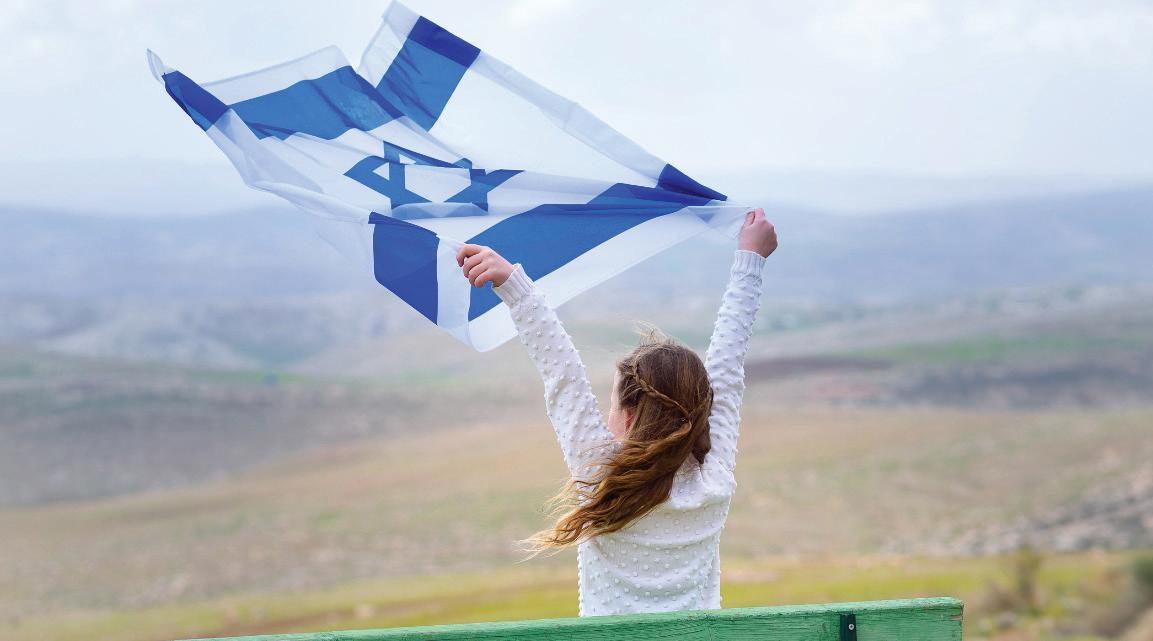
“I still talk to a shlichah from one of my other schools. I still know her, and my students who are now grown still visit her in Israel,” Bernat said. “It can be a really beautiful partnership when shlichim really immerse themselves into






the community and the community partners with them.”












































































Even the night sky isn’t what it used to be. One recent study estimated that the Milky Way is no longer visible to onethird of humanity due to increased light pollution in urban areas, including 60% of Europeans and 80% of Americans.
One night last week, my family and I visited Lowell Observatory in Flagstaff, and it was incredible to see many more stars than we’re used to seeing in Phoenix. Yet, even there, in a city regulating what type of lighting residents are permitted to use to reduce light pollution, we could only see a faint trace of our home galaxy.
Our diminished ability to see the shamayim, the Heavens, in Biblical Hebrew, may contribute to the somewhat neglected status of the mitzvah of Yiras Shamayim,
Awe of Heaven, which appears in Parshah Eikev.
But despite the contemporary challenge of seeing our night sky, if one is mindful, it is not difficult to become awestruck by the vastness of humanity, history and the universe versus our extreme minuteness and seeming insignificance. Has our new understanding of the universe, thanks to modern science and technology in the past few centuries, made it easier to experience awe or more difficult?
Though, unfortunately, he sneered at religious faith and its historically skeptical view of science, celebrated astronomer Carl Sagan (1934 – 1996) believed that we can appreciate the grandness of existence today like never before.
“How is it that hardly any major religion has looked at science and concluded, ‘This is better than we thought! The Universe is much bigger than our prophets said, grander, more subtle, more elegant?’” he wrote. “Instead, they say, ‘No, no, no! My god is a little god, and I want him to stay that way.’ A religion … that stressed the magnificence of the Universe as revealed
by modern science might be able to draw forth reserves of reverence and awe hardly tapped by the conventional faiths.”
For me, the experience at Lowell, where knowledgeable volunteers casually demonstrated the vastness of the known universe, was religiously awe-inspiring. One directed a portable telescope at the Butterfly Cluster, an open cluster of around 120 stars in the Milky Way in the southern constellation of Scorpius, approximately 1,590 light-years away; another displayed a faint image of Hoag’s Object, an unusual ring galaxy in the constellation of Serpens Caput located approximately 600 million light-years away. It is a shame that many still assume there is a conflict between science and religion, and these newly appreciated wonders are unlikely to have resulted in an overall net gain in Awe of Heaven.
Thanks to the unfolding scientific research on the emotion or feeling of awe itself, we are beginning to appreciate its positive impact on health and society.
In her Wall Street Journal column, Elizabeth Bernstein summarized recent research that has found that awe experiences
23 - 6:46 P.M.
30 - 6:37 P.M.
SHABBAT ENDS
AUGUST 24 - 7:41 P.M. AUGUST 31 - 7:31 P.M.
reduce anxiety and stress and increase positive emotions and overall life satisfaction. Researchers have also found that people who have experienced awe are likelier to show empathy and help others. These findings might make rabbis’ jobs easier when promoting taking the mitzvah of Awe of Heaven more seriously. Who are we to argue if physicians now recommend large doses of awe for optimal physical health and therapists for better mental health?
When we find ways to cut through the light pollution and cityscape while we pay more attention to the discoveries of science, we might be lucky enough to become awestruck as we encounter the grandeur of nature and the magnificence of the Divine, as we enjoy its beneficial effect on our wellbeing, relationships and our religiousspiritual personalities. JN
I’m a traveling mohel. My colleague’s unprecedented arrest in Ireland has shaken me to my core.
RABBI HAYIM LEITER | JTA
“What are these for?” the security guard at the Dubai airport asked as three others inspected my bris kit — the bag of supplies I carry when I perform circumcisions.
Whenever I travel for work, I never check a bag, so this can make for interesting encounters at the X-ray machines. There are times I’ve lied and said I make jewelry, but since circumcision is a cultural norm in the United Arab Emirates, I decided to come clean. “I perform circumcisions,” I replied. They looked at me with blank stares. “You know, the operation done to a baby … on his…” All three showed their recognition in unison. It felt like I was in a movie.
I have many stories like this. People love to talk about Israel, Judaism and brit milah, Jewish ritual circumcision, even in the most unexpected places. But as a trip approached, the news out of Ireland gave me pause.
We are a diverse community. The views expressed in these opinion pieces do not necessarily reflect the views of the officers and boards of the Jewish Community Foundation, Center for Jewish Philanthropy, Jewish Federation of Greater Phoenix, Cleveland Jewish Publication Company or the staff of the Jewish News. Letters must respond to content published by the Jewish News and should be a maximum of 200 words. They may be edited for space and clarity. Unsigned letters will not be published. Letters and op-ed submissions should be sent to editor@jewishaz.com Commentary
Rabbi Jonathan Abraham, a wellrespected mohel from the United Kingdom, was arrested in Dublin for performing circumcision despite not being a physician, on the basis that circumcision is a medical procedure. The details of the story are still emerging, but what is known is that the rabbi traveled to Ireland, which he had done many times before, to perform circumcisions for a number of non-Jewish boys.
In the court proceedings, a detective testified that she entered the home to find one baby on a changing mat, who had already been circumcised, while Rabbi Abraham was preparing to circumcise another child. The mohel was refused bail and could be sentenced to five years in prison and perhaps fined up to 130,000 euros ($143,000). The arrest has come as a shock, as it had appeared to be settled law in Ireland that circumcision carried out for religious and cultural reasons
is not classified as a medical procedure.
For traveling mohels like me, this is a rather disconcerting story.
My mind has been flooded with questions. The most pressing: Why was this mohel arrested given the understanding of the law in Ireland? Many articles on the arrest quote a 2007 law that requires practitioners to be medical professionals, which this rabbi is not. But it is 2024 and this is the first time this has happened in the region.
It goes without saying that the climate for Jews is not good right now. Israel is a hotbutton topic all over the world and every day there seems to be more news of a growing wave of antisemitism. I hate to say so, but it felt that it was only a matter of time before something like this would happen.
The good news is Rabbi Abraham is a member of the UK Initiation Society,
the institution which trains and regulates religious circumcisers. Even though he was originally denied kosher food and tefillin, the Initiation Society and local Jewish leaders are making sure that both Rabbi Abraham and our core religious values are safe. But there are no guarantees. As far as I understand it, this is the first time a rabbi has been arrested for performing circumcision since the time of the Nazis. I pray that next time I’m called on to perform a brit outside of Israel, I will have the strength to do so. My hope is that Rabbi Abraham will be home with his family soon, and that we mohels can band together to keep our age-old tradition alive. JN
The views and opinions expressed in this article are those of the author and do not necessarily reflect the views of JTA or its parent company, 70 Faces Media.
SHANNON LEVITT | STAFF WRITER
Not long after moving to Los Angeles’ Pico-Robertson neighborhood, a place with a large Modern Orthodox population, Tucson native Jessica Elisheva Emerson heard a tale that surprised and intrigued her. An unmarried Orthodox friend told her of hearing that wife swapping, the practice of exchanging sexual partners between a group of married couples, was going on within the Jewish community.
True, she could have simply chalked it up to a bit of second-hand gossip, but the idea that a group of Orthodox Jews was wife swapping was not something easily forgotten. Especially given that Emerson is a writer.
The idea “sort of stuck in my craw,” Emerson told Jewish News. “Olive Days,” her debut novel, will be published by Counterpoint Press/Penguin Random House on Sept. 10. The story follows the life of Rina Kirsch, a Modern Orthodox woman whose husband suggests a night of wife swapping with other Orthodox couples for the sake of their marriage. When her friend first told her about the wife swapping, “I wasn’t even thinking of a story; I was just like, ‘Go on,’” Emerson said. She ended up lightly investigating it by taking a few people out for lunch and scoping out the story. Nobody ever admitted any personal experience, but several people confirmed that they, too, had heard similar stories.
“I do not think wife swapping is endemic to the community or widespread. But I feel strongly that it definitely happens,” she said. The people she talked to had a variety of explanations and rationales: It keeps marriages together; it makes marriage stronger; it’s not adultery if everyone consents.
Emerson knew she would eventually write a story with wife swapping at its center, it just took her some time to flesh it out. Initially, she wanted to write a love triangle about a woman who falls in love with the man her husband has asked her to sleep with. That didn’t really work because “it didn’t ring true,” Emerson said. What did ring true was the idea that sometimes polyamory can go very wrong. Emerson started asking herself what happens if it doesn’t go well? What does that look like? How might a person’s life unravel?
“Would her community, her upbringing, her sense of duty impact her struggle? That’s ultimately the story I wanted to tell,” she said. The novel explores the protagonist’s many contradictions and both the thrill and nightmare of living a

secret life. Emerson suspects that most readers will experience Kirsch’s tale as a tragedy.
The novel has already generated a lot of buzz. Publishers Weekly named Emerson one of 10 authors to watch and several outlets, including the Jewish Book Council, have listed “Olive Days” as one of the most anticipated books this fall.
Emerson knows she may face criticism, too, but she’s already had several people tell her, “Oh my God! I had this experience and I’m so excited to read your book,” she said. “It might hurt some people’s feelings and might offend some people. Good writing should spark conversations.
The best books are never books where you put it down and think, ‘Well, that’ll be universally beloved.’”
Emerson was born and raised in Tucson but moved to Los Angeles for college. She stayed for more than two decades before moving back to Arizona, where she was executive director for Hillel at the University of Arizona in Tucson, a job she left last year.
While she has thought about incorporating elements of her time on campus into a future work, she said, “The privilege of working with the students has already impacted my writing profoundly.”
A handful of the students she worked with appear in the acknowledgments of her book because she felt that she “learned just as much from those students who see the world in such a unique way.” She said they gave her “a different lens through which to see the world and think about Jewish expression.”
Before moving home and to Hillel, Emerson was the inaugural director of the Jewish Emergent Network, the communications director at Los Angeles’ Sinai Akiba Academy, worked in business and legal affairs at a major motion picture production company and was a journalist covering the entertainment industry. She now works for a Jewish literacy organization.
Emerson was a finalist in the 2024 and 2020 Tucson Festival of Books Literary Awards and placed second in the 2020 First Pages Prize. Her stories and poems have been published in literary journals including, Air/Light Magazine, The Beloit Fiction Journal, Midwestern Gothic, Crucible, Drash and Anemone Sidecar. Her original play “The Greys” was produced in Hollywood.
“Olive Days” took over a decade to write. Emerson has two kids in college and a 7 year old. She wrote the bulk of her novel before her third child was born and she did it in condensed stretches, she said. She found a way to write in short blasts between her full-time job and parenting duties.. She used the weekends that her ex-husband took the kids to drive up the coast, get a cheap motel room near the ocean and work for three days.
“I would drink Diet Coke and red wine, take a morning and afternoon walk and write and edit for three days. That’s how a lot of the book was put together,” she said.
She’s already at work on her second novel, set in L.A., but isn’t about to take another 10 years to write it. Selling her first book is highly motivating and having one
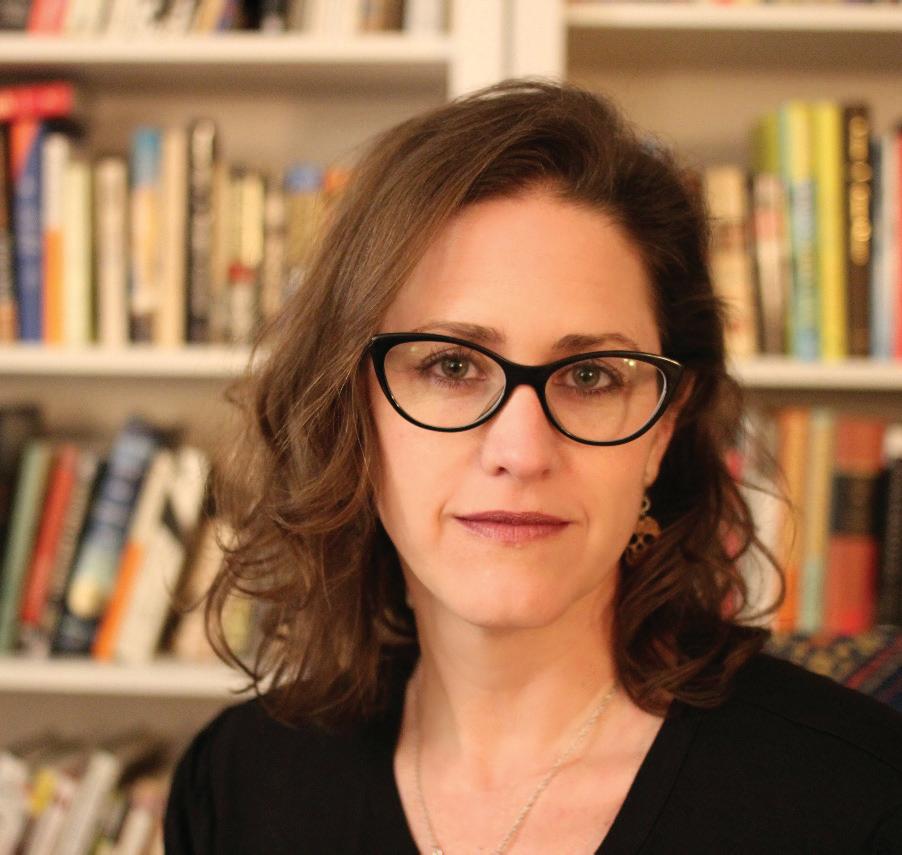
7 year old is easier than two young kids. “Even though I have a very full-time job, I feel more able to balance now than I did when my kids were really little,” she said. In fact, she already had an idea for a third novel that will be set in Arizona, which “is very exciting for me because I love Arizona,” she said.
Emerson has been writing since she was a girl, but she never expected that it would pay her bills and she doesn’t know that it will ever provide the reliable income she has with her job. The important thing is that she loves telling stories.
“Someday, when I’m reflecting on my life, I want to feel that I had a balance of things that made me happy and also allowed me to contribute to the world with the time that I’ve had,” she said. JN
Jessica Elisheva Emerson will sign books at Changing Hands Bookstore in Phoenix on Sept. 30. For more information, visit ElishevaEmerson.com.
SHANNON LEVITT | STAFF WRITER
Books of poetry rarely hit the bestselling list or make great beach reads. Still, poetry matters a lot to people from all walks of life. A few years ago in Harper’s Bazaar, movie producer Isabella Macpherson succinctly made the case for the art form when she said, “Poems can change the way you look at the world.”
That statement gets to the essence of why Phoenician Abraham J. Frost loves the art form and what he hopes to inspire in others with his recent book of poetry, “Wolfhound: Old and New Poems,” self-published in February and available for purchase on Amazon.
Frost has been writing poetry since he was a kid. In eighth grade, one teacher took his and his classmates’ poems and stories and published them in a book that now sits among 32 million others in the Library of Congress. Frost, who admires the ungrammatical flair of the poet E.E. Cummings, prefers writing poetry to other literary forms, in part because of its openness to experimentation. He kept writing down his thoughts in stanza form into high school and college, winning various regional poetry competitions. Yet, once he entered graduate school
and the working world, he was overburdened by all the responsibilities that came with “living life,” poetry took a back seat.
In 2024, he stopped procrastinating and firmly resolved “to get back on that poetry train and finally finish my book. Suddenly, I got a wind of inspiration and I started writing poetry like crazy,” Frost told Jewish News.
He loves the sense of accomplishment and the feedback he’s received, but above all, having the joy of poetry back in his life has been profound.
“Some of the poems are avant-garde, maybe a little out there, and some are plain, pastoral. Mixing styles was really fun,” he said. The subjects vary widely, including rainbows, politics, antisemitism and his daughter. Additionally, as the title makes clear, some of the poems come from earlier moments in his life, offering him a glimpse of his mindset as a much younger man.
“Sometimes the poetry is brash; sometimes it gets in your face. Other times, it’s very sweet and gentle. My hope is that people just enjoy them,” he said. Frost knows poetry is not for everyone but that shouldn’t matter. Poetry interpretation has a lot of latitude but not a lot of right and wrong answers. Besides,
“coming away with different perspectives is the Jewish way.”
Frost’s poetry is all about creating a mood. In one poem, written while holding his infant daughter (whose middle name is Rose) in a rocking chair, he describes items in her room, imagining variations on how her future might unfold.
“Two Rose/ Two dancers/ And a bookshelf full of knowledge.” The lines are aspirational, Frost said. They set a mood but nothing is direct or defined. It’s all a matter of how he sees things at a particular moment in time.
Another poem, “A Page of the Talmud Translated into Japanese,” was inspired by a post he saw on Instagram. Kveller, the Jewish parenting magazine, posted something translated into Japanese, and the dichotomy of the two traditions inspired him.
“There was a burst of inspiration and I wrote the poem in my Notes app on my iPhone. The overlapping of the two cultures created a weird intersection that I found interesting and lyrical,” he said.
Frost, a member of Scottsdale’s Congregation Or Tzion, also wrote some poems reflecting on Israel’s war in Gaza




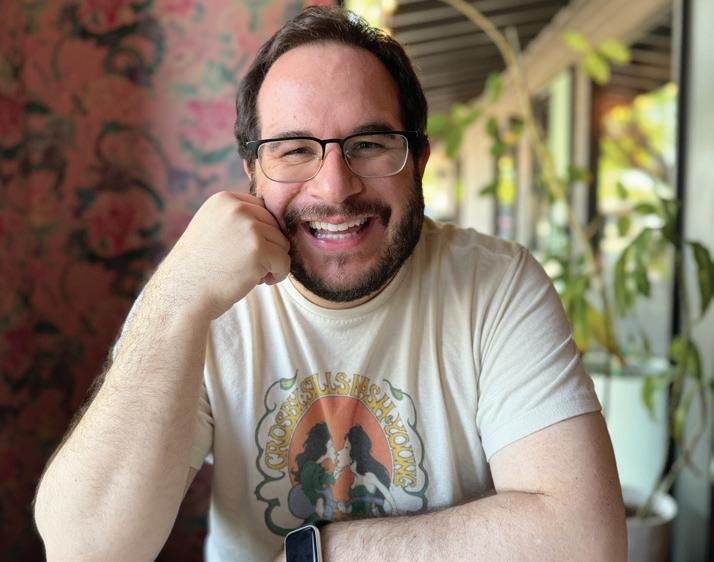
and the accusations of antisemitism against several presidents of leading American universities last spring.
“I was driving around Phoenix and seeing billboards calling for the release of the hostages. That found its way into a poem that turned out to be a little dystopian,” he said. However, he pointed out, it’s difficult to predict what will catch his interest.
As a grant writer for the Arizona State University Foundation, Frost does get to draw on his creativity for his job. In his work, he collaborates with his team to find ways to use storytelling to fund a project. He has also contributed freelance articles to Jewish News. Yet, it’s not the “pure and unfettered creative expression of poetry,” he said. With one book under his belt, Frost’s not about to stop. There are times he writes two or three poems a day.
“I’m not really in a rush, though. I’m having fun with it. The best part is rediscovering poetry, my literary outlet,” he said. JN
To purchase a copy, visit amazon.com/ Wolfhound-Poems-Abraham-J-Frost.

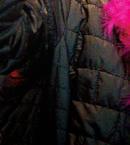

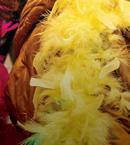

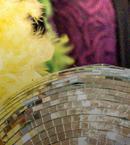

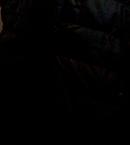


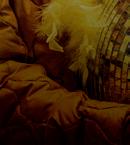

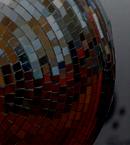




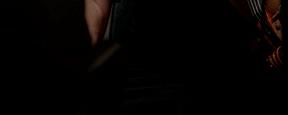
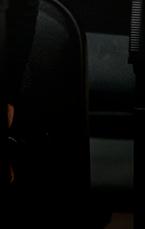


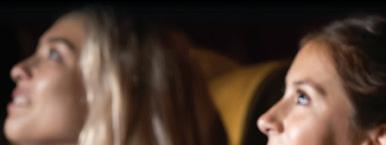




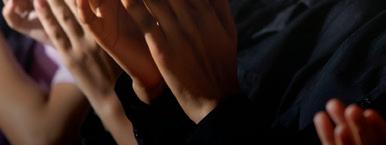



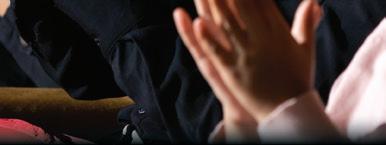
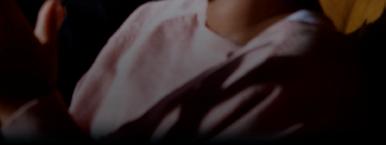
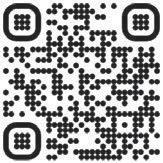

We Ain’t Ever Gonna Break Up: The Hymon and Parfunkel Musical
Sep 4 – Nov 3, 2024
Waitress
Sep 25 – Nov 24, 2024
Miracle on 34th Street: A Live Musical Radio Show
Nov 20 – Dec 28, 2024
Seussical the Musical
Dec 18, 2024 – Jan 26, 2025
Festival of New American Theatre
Jan 17 – Feb 2, 2025
Churchill
Feb 5 – Apr 13, 2025
Jersey Boys
Feb 19 – Apr 27, 2025
Forbidden Broadway Apr 23 – Jun 22, 2025
Into the Woods
May 21 – Jul 13, 2025


Let the Good Times Roll: A New Orleans Gumbo
Aug 6 – Sep 21, 2025

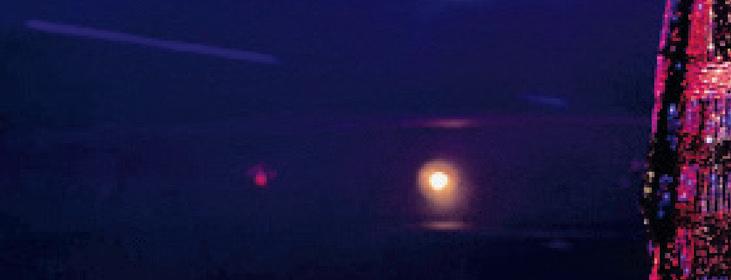
DID YOU KNOW YOU CAN BINGE LIVE THEATRE?
Access
Complete access to any show, any day, as many times as you want to see it, for every production in the 2024/2025 Season! PLUS all these extra benefits:
• 25% OFF additional single tickets
• 20% OFF at the ArtBar+Bistro and Concessions, including merchandise
• FREE unlimited exchanges*
MALA BLOMQUIST | MANAGING EDITOR
After 14 times submitting a feature or short film to be considered for the Sundance Film Festival, Nathan Silver received the call that his film “Between the Temples” was accepted.
“They said it was an annual tradition of rejecting my films and they were breaking this tradition and taking the movie,” Silver joked. “They also said it was one of the few films that was unanimously chosen, which is rare.”
“Between the Temples” opens in theaters nationwide on Aug. 23 and is Silver’s ninth feature film. He made eight films in as many years and admitted he was working at a manic pace.
“I would be in post-production on one movie and pre-production on the next,” he said. “I didn’t want to deal with all the anxiety that comes with waiting to see which festivals are going to reject your movie. And when your movie gets into a festival and starts its life on the festival circuit, then you’re looking for distribution and there are lots of highs and lows.
So, I just wanted to focus on making the work.”
Right before the pandemic hit, Silver had forced himself to slow down a bit and was working on a script to make “something bigger” with two co-writers, but that movie never materialized.
He was also working on a documentary about his mom, Cindy Silver, an actress who has appeared in several of his films. His parents had relocated to upstate New York and were looking for community, so they joined Congregation Emanuel of the Hudson Valley in Kingston.
This came as a total surprise to Silver.
“I grew up in a completely secular household,” he said. “My mother was a red diaper baby. Her parents were socialists. They had met at a socialist summer camp. So, religion was never really a part of our lives, even though we were very culturally Jewish.”
He was even more surprised when he arrived to film and found out his mom was in a b’nai mitzvah class.

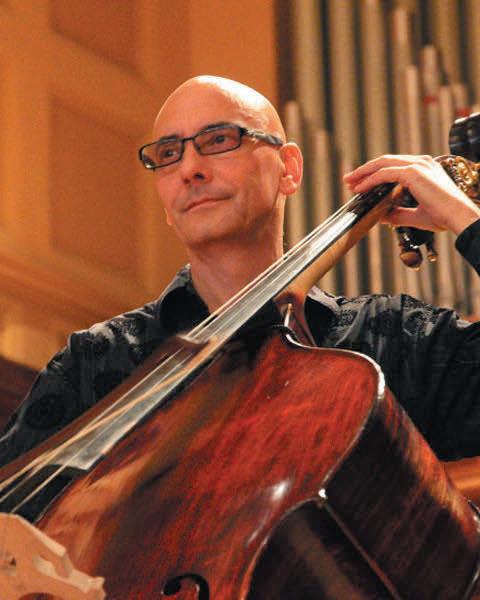

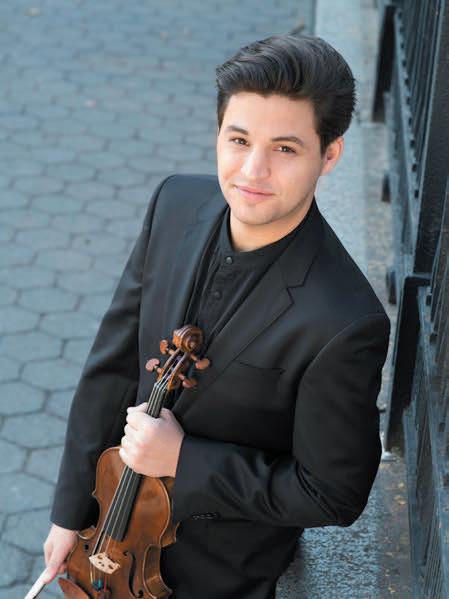
A few weeks later, he was at a party and ran into Adam Kersh, a publicist Silver had worked with, and he relayed the story of his mom being in a b’nai mitzvah class.
“There’s a movie there,” Kersh told him. Silver asked him about the premise, and he went on to explain that it could be a riff on the cult classic, “Harold and Maude,” in which a late-in-life bat mitzvah student falls for her younger cantor or rabbi.
Kersh kept talking to him about the idea. When the pandemic hit, companies invested money in development so that scripts would be ready when the restrictions were lifted. With funding and collaboration with co-writer, C. Mason Wells, the script started to take shape.
They had secured Jason Schwartzman to play the lead role of Ben Gottlieb, a cantor experiencing a crisis of faith after his wife’s death, but they were struggling with who should play the bat mitzvah student.
“It was my wedding, and everyone got COVID,” said Silver. “I was in Paris, and I had this fever dream and when I woke up, I was like, it has to be Carol Kane. I called my producers and co-writer, and everyone was like, ‘Why did we not think of her in the first place?’ It was written for her.”
Luckily, Kane had always wanted to work with Schwartzman. “They’d never met, but the first time I saw their faces pop up on Zoom, they had an immediate rapport, and I was like, there’s the movie,” said Silver.
He said his mom is a huge fan of Kane and Schwartzman and they filmed some of the movie at Congregation Emanuel. “Seeing them in this world — in her own temple — with her son directing them, I think it meant a lot to her.”
Silver currently lives in New York City, and he remembers visiting Queens grow-
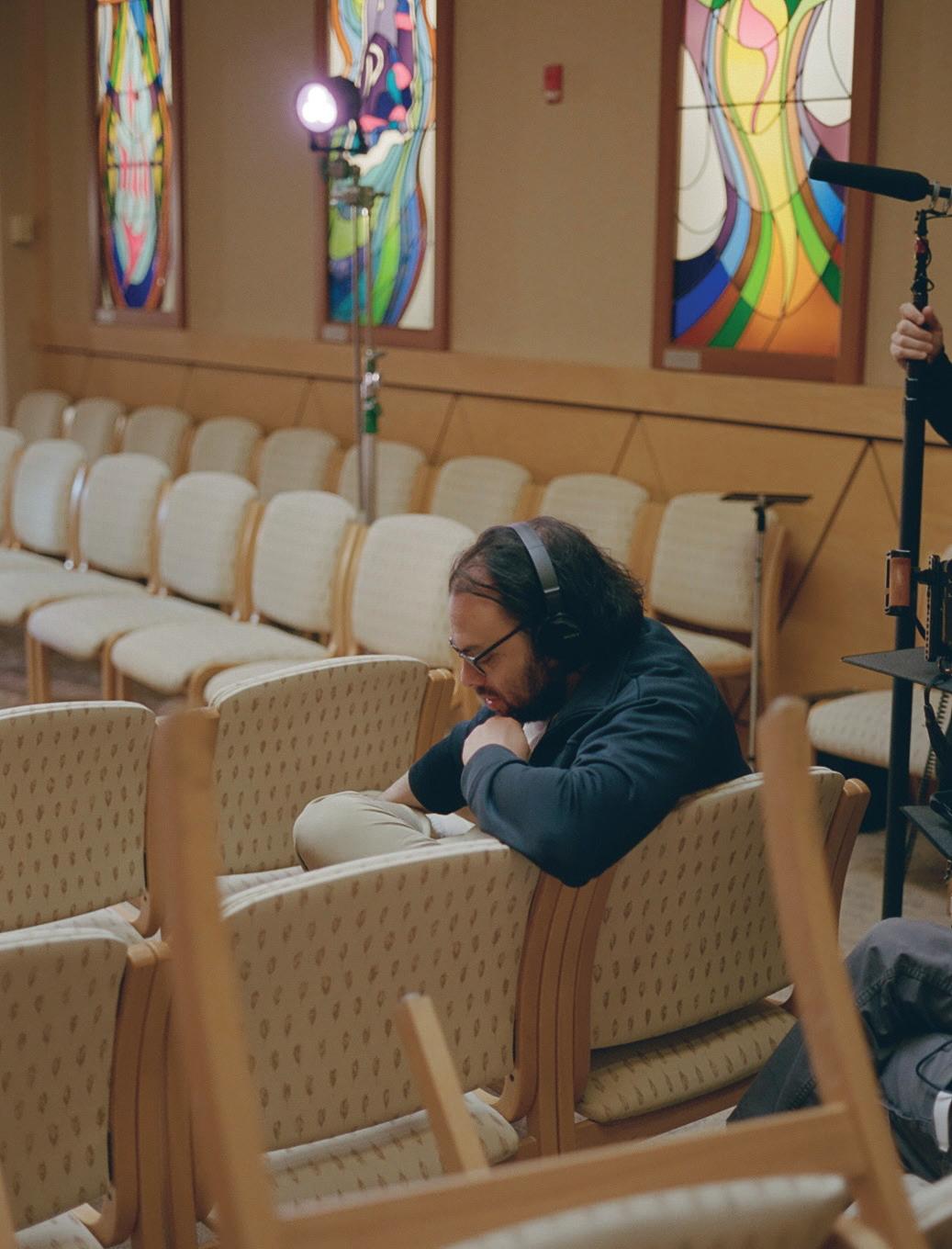
ing up, where both his parents’ families lived. He grew up in predominantly Catholic Arlington, Massachusetts, and was the only Jew in his school. He admitted his parents “felt out of place” there, and their “New York Jewish cultural identity” meant a lot to them, and in turn, to him. Although he wasn’t sure New York wanted him as a resident in the beginning.
“I moved to New York for NYU. I got here a week before Sept. 11,” he said. “My second night here, one of my roommates overdosed on heroin, he survived, then it was Sept. 11, then I moved into an apartment that burned down — it was one thing after another. I didn’t know if somebody wanted me to live here or not. That’s why I’m like, ‘You can’t get rid of me New York.’”
Luckily, things have calmed down for him, although he is busy on a press junket for the movie, and he is thankful it is being so well received. “I am just immensely grateful that people see in it what I see,” said Silver. “I love this movie very much and I am so glad that others do as well.” JN
For more information, visit sonyclassics.com/ film/betweenthetemples.

SHANNON LEVITT | STAFF WRITER
In a world awash with self-help books, viral health trends and an endless stream of online advice, one oftenoverlooked source of wisdom stands right in front of us: dentists. Beyond their role in maintaining our bright smiles, dentists offer a treasure trove of guidance that extends far beyond the confines of their clinics. Jewish News asked Jewish dentists around the Valley for tips on keeping your teeth in tip-top shape.
Several spoke about what people get wrong about their oral health, like the fact that cavities aren’t caused by too much sugar alone.
“It is diet, oral hygiene and the type and amount of bacteria in the mouth. It is not just one thing, like genetics,” said Dr. Lisa Bienstock of the Kids’ Dental Office of Phoenix & Orthodontics and Ironwood Pediatric Dentistry in Scottsdale.
There’s also the general belief that a trip to the dentist has to be painful.
Creative Dental Specialists Dr. Yair Whiteman and Dr. Steven H. Goldstein pointed out that advanced techniques in the field lead to quick and pretty painless procedures. Unfortunately, because people are nervous about that dental visit, they put it off.
“Some patients believe that ‘if it does not hurt, there is no problem.’ Thus, they might wait too long before addressing a simple issue, thus allowing unnecessary complications to set in.”
One of the most significant benefits of heeding the dentist’s advice lies in preventive care.
Dentists don’t just clean teeth; they offer invaluable advice on how to prevent future problems. This includes guidance on proper brushing and flossing techniques, dietary recommendations and fluoride treatments.
Some “underestimate the importance of regular dental check-ups and consistent oral hygiene practices. They often believe that brushing alone is sufficient, neglecting the vital roles of flossing, professional cleanings and diet in maintaining optimal oral health,” said Dr. Steven Lebowitz of Lebowitz Dental Associates.
Dr. Josh Raiffe of Shea Dental of Scottsdale advises patients that “maintaining good oral hygiene by brushing your teeth twice daily with hydroxyapatite toothpaste, flossing daily and limiting sugary and acidic foods and drinks” will go a long way to preventing cavities and tooth decay.
In terms of keeping teeth white, Raiffe says it’s important to brush one’s teeth two times every day with a whitening
toothpaste — and floss.
“Avoid foods and drinks that can stain teeth, such as coffee, tea, red wine and berries, and consider using a straw for beverages that can cause discoloration,” he said.
Regular cleanings also matter for white teeth.
Dr. Shalom Fialkoff of Paradise Valley Dental recounted the origin story of why people believe twice-yearly dental visits are necessary.
“Claude Hopkins, a pioneering PR and marketing professional, developed the slogan “Use Pepsodent twice a day — see your dentist twice a year.” His 1920s scientific approach to marketing, which emphasized creating consumer habits, significantly popularized regular dental check-ups. This slogan not only increased the demand for Pepsodent but also promoted the idea of preventive dental care. Over time, insurance companies adopted this biannual “recommendation” and began covering biannual cleanings and exams,” Fialkoff explained.


“THE BEST WAY TO MANAGE DENTAL ANXIETY INCLUDES COMMUNICATING OPENLY WITH YOUR DENTIST ABOUT YOUR FEARS, ALLOWING THEM TO TAILOR THEIR APPROACH TO YOUR NEEDS,”
DR. JOSH RAIFFE
The idea stuck, and many dentists agree that two annual visits are a good idea and even vital to maintaining good oral health. Fialkoff argues that it all depends on the patient.
“For those with high-cavity risk or a history of periodontal disease, we recommend visits every three months. Those with low-cavity risk and no fillings can often go once a year or even longer,” he said.
When dental visit anxiety is a problem, there are some coping methods dentists can offer. Top of the list is communicating with your oral health professional.
“The best way to manage dental anxiety includes communicating openly with your dentist about your fears, allowing them to tailor their approach to your needs,” Raiffe said.
“If you and your dental provider have a personal connection, you will feel comfortable and not be anxious,” agreed Whiteman and Goldstein.
On the other hand, Lebowitz suggested that “some patients find comfort in listening to music or using sedation options
provided by their dentist.
Bienstock suggested finding a dental office where “you feel comfortable, happy and you look forward to going to the dentist.”
Dentists often work to create a comfortable environment and provide reassurance to ease patients’ fears. By focusing on the long-term benefits of adhering to their advice — such as avoiding more complex and costly procedures later on — patients can find the motivation to overcome their apprehensions.
Ultimately, taking advice from your dentist is about more than just maintaining oral hygiene; it’s about engaging in a partnership for your overall health. These Valley dentists offer critical insights into not just how to keep your smile bright but also how to lead a healthier life. JN
For more information, visit Dr. Lisa Bienstock at thekidsdentalofficeofphoenix.com and ironwoodpediatricdentistry.com; Dr. Yair Whiteman and Dr. Steven H. Goldstein at creativedentalspecialists.com; Dr. Steven Lebowitz at lebowitzdental.com; Dr. Josh Raiffe at sheadentalaz.com; and Dr. Shalom Fialkoff at paradisevalleydental.com.

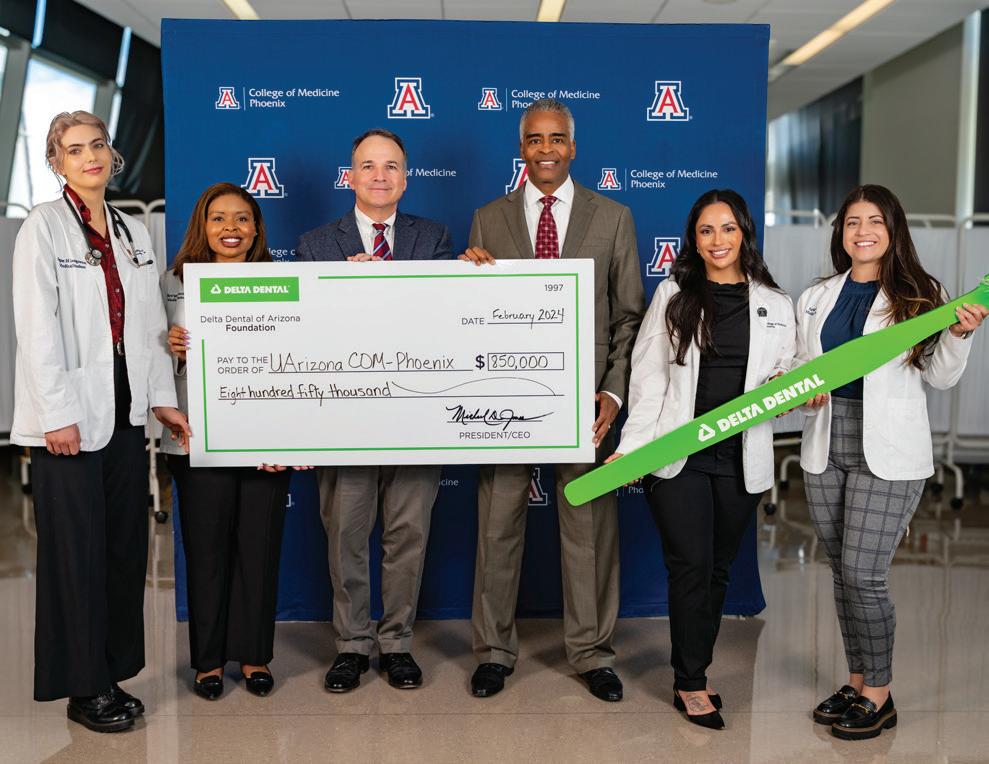
This past spring, Delta Dental of Arizona, a health and wellness company providing affordable dental and vision benefits to individuals, families and businesses throughout the state, relocated its headquarters to 14850 N. Scottsdale Road, Suite 400, on the southwest corner of Greenway Pkwy. and Scottsdale Road. The 13,400-square-foot space is designed with flexibility and innovation in mind.
“This move means more than a simple change of zip code. As we continue our transformation from a single-line insurance company to a multi-line health and wellness company, it is critical to have a physical presence where other such organizations reside,” said Michael Jones, president and chief executive officer of Delta Dental of Arizona.
In addition, according to Jones, the move was made with Delta Dental of Arizona team members, current and future, in mind.
“It was also a priority to adapt our layout to modern work practices. As a result, our new space is designed for greater efficiency and collaboration,” said Jones.
The new suite features fewer traditional offices and more meeting spaces, from conference rooms to huddle zones, to fit the team members’ varied needs. Each huddle or meeting room is named to honor a health and wellness pioneer, with a focus on diversity and increasing other’s access to health equity. When a guest enters each room, they are able to scan a QR code and learn about this individual’s pioneering work and lasting impact. The design also provides a central hub for gatherings and connections.
“It is also outfitted with state-of-the-art technology that will make working and sharing information among team members seamless, driving more efficiencies in how we support our customers, members, providers and brokers,” said Jones, adding that visually the space also features a “living wall” of lush greenery, which illustrates the organization’s commitment to growth and health. It also has a “word wall” at the entrance, an art installation that depicts our mission, vision and values for the public to see. These values include integrity, service, collaboration, inclusion and care.
The move is just one major step in a series of major moves from the health and wellness company.
Also this spring, Delta Dental of Arizona announced that effective April 1, 2024, most plans will give children and adults with special health care needs access to increased benefits, including additional dental visits to increase patient and caregiver comfort and set treatment expectations; up to four dental cleanings in a benefit year; extra chair time for
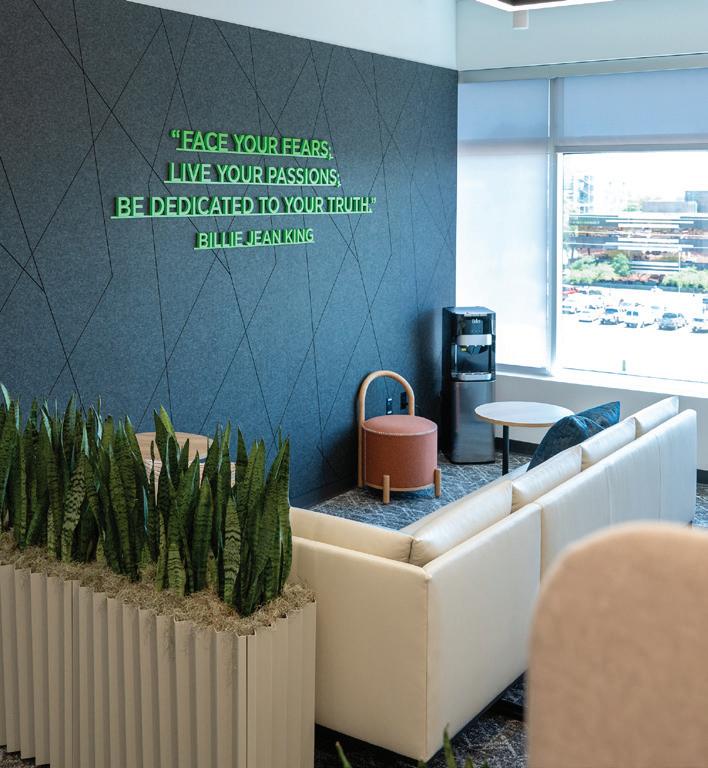
treatment delivery modifications necessary to accommodate patients with sensory sensitivities, behavioral challenges or other barriers to treatment; and use of anesthesia to provide dental care, which may include up to four units of anesthesia, when necessary.
Delta Dental of Arizona also recently announced a groundbreaking partnership with The University of Arizona College of Medicine – Phoenix to create Arizona’s first-ever Oral Health In Medicine Initiative (OHMI). The partnership — made through a $850,000 investment by the Delta Dental of Arizona Foundation — will increase oral health education for all medical students at the University of Arizona College of Medicine – Phoenix and is expected to launch in the 2024-2025 academic year, which commenced in July. It is estimated that upon completion of the program, University of Arizona College of Medicine – Phoenix graduates will be able to make a positive impact on up to 180,000 patients per class, per year.
And in just the past few weeks?
To increase awareness of the important role that mouth guards play in sports safety and to ensure access to affordable, high-quality mouth guards, Delta Dental of Arizona is launching its first retail mouth guards to protect athletes of all ages and levels. The Delta Dental Athletic Mouth Guard is designed to protect athletes with twice the impact absorption of traditional mouth guards. They have a patented fitting material that makes speaking, drinking and breathing easier while providing a remoldable, braces-friendly fit. Additionally, the Delta Dental Athletic Mouth Guard is an ADA accepted product, which means it has demonstrated safety and efficiency in alignment with ADA requirements. To kick off the campaign, the organization partnered with the Arizona Interscholastic Association (AIA) to provide 120 mouth guards to high school girls’ flag football participants at a sports combine in Scottsdale on August 3.
“This collaboration underscores our commitment to promoting oral health and safety among young athletes. Partnerships like this allow Delta Dental of Arizona to support local communities, encourage healthy lifestyles and ensure that young athletes can play safely and confidently,” said Jones.
Finally, since 2010 alone, Delta Dental of Arizona, through its Foundation, has given more than $18 million to support oral health education, disease prevention and food assistance programs for underserved and uninsured communities across the state.
For more information about Delta Dental of Arizona, visit deltadentalaz.com.
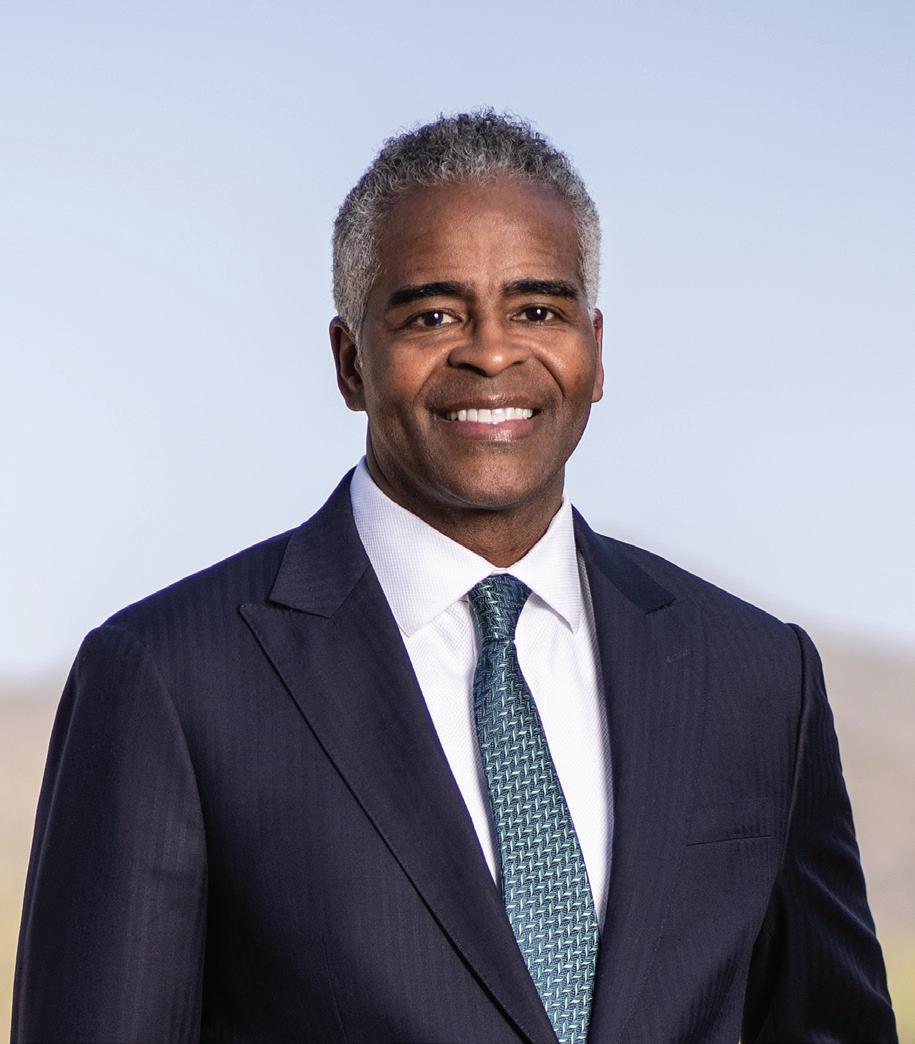


In recent years, the term “whole-person health” has garnered more and more attention.
According to the 2024 Oral Health and Wellness Report, a statewide survey that studies the ways in which individuals think about health and approach their own care, it is clear that this patient-centered approach to health care that considers a person’s entire well-being is more than a passing wellness fad or buzzword. This year’s findings highlight Arizonans’ increasing understanding about the direct connection between oral health and overall health, notably including mental health at higher rates than ever reported.
According to the report, Arizonans are increasingly familiar with the connection between oral health and conditions like heart disease (50%), respiratory illness (32%), diabetes (29%) and high blood pressure (28%) at higher rates than in years prior. In addition, Gen Z and Millennials are more likely than Gen X and Boomer generations to know of the connection oral health has to certain conditions like respiratory health, diabetes and high blood pressure.
It also shows that three in four adults, on average, say oral health is closely related to mental health. As it relates to generational data, 71% of Gen X and Boomers are making the connection, while 76% of Gen Z and 82% of Millennials feel strongly there is a direct relationship between the two. Diving deeper into the findings, 23% of all respondents reported direct feelings of anxiety as a result of their oral health; 21% reported embarrassment over their appearance; 20% lost sleep over oral health; and 19% experienced direct feelings of sadness related to oral health.
Additional findings:
• Only about three-fifths (59%) of Arizonans replace their toothbrush every three months or more often, as recommended by the American Dental Association (ADA) guidelines. This is down from 70% in 2023.
• Financial issues are reported as the No. 1 barrier to care. Half of Arizonans who faced such a barrier cited out-of-pocket costs, while 43% were concerned by not having dental insurance.
• This year, Boomers were more likely than Gen Z and Millennials not to go to a preventive visit simply because they thought their oral health was good enough (15% vs. 11%).
• The top items wanted in dental insurance across all generations are two free preventative cleanings annually, oral surgery coverage and extra cleanings for high-risk individuals
• An estimated 30% of Arizonans are now somewhat familiar with teledentisty, with Gen Z (44%) more familiar than Gen X and Boomers (20%)
Taking action to protect oral health is taking action to protect one’s overall health, including mental health. This report shows that engaging the community around whole person health, supporting innovative programs and providing equitable access to care is more important than ever.
Delta Dental of Arizona has made critical strides in whole-person health initiatives and equitable access to care. In 2023 alone, Delta Denta of Arizona donated $2.1 million to improve health and wellness in Arizona, supporting 252,094 Arizonans across all 15 counties in receiving oral health education and/or services, enabling 33,081 Arizonans to receive food insecurity and nutrition education programs.
Delta Dental of Arizona also kicked off 2024 by awarding grants to 39 nonprofit organizations that work with underserved populations of all ages. A total of $793,149 funds were awarded to support projects and services promoting good oral health practices and increasing access to dental care among underserved children, pregnant women, seniors and adults, as well as nutritional access programs such as food banks, after-school and weekend food programs for children, and senior delivery programs. Some of the programs across Arizona, by way of example, include:
• Advance Community’s Arizona Oral Health Education Program, which educates children in Title 1 schools and various day care centers across the Valley about the importance of proper daily hygiene practices, proper brushing/flossing techniques and the need for routine dental visits. The program is available in both English and Spanish as needed. Advance provides each participant with a Smile Bag that contains an age-appropriate toothbrush, toothpaste, and dental floss, as well as referrals to dental providers who offer dental care at reduced/no cost.
• Tooth BUDDS, which is a group of affiliated dental practice hygienists who serve the children of Graham and Greenlee counties by providing dental screenings, dental cleanings, sealants, fluoride varnish, Silver Diamine Fluoride applications at no cost at the school location.
• El Rio Health Center’s Pediatric Dental Integration Program expands direct dental screening, varnish and oral health education during children’s medical well visits by embedding dental hygiene teams in five El Rio Health clinic locations throughout Tucson.
It is critical that health and wellness organizations continue to work to collectively create programs and initiatives that support access to whole-body health for all Arizonans. We are all in this together.
Michael Jones is president and CEO of Delta Dental of Arizona, a health and wellness company providing affordable dental and vision benefits to individuals, families and businesses throughout the state. He also serves as president and chairman of the Delta Dental of Arizona Foundation.
SHANNON LEVITT | STAFF WRITER
In modern dentistry, orthodontists play a pivotal role that extends far beyond merely straightening teeth. As specialists dedicated to diagnosing, preventing and treating dental and facial irregularities, orthodontists are essential in enhancing both the functionality and aesthetics of our smiles.
Jewish News asked a few local Jewish orthodontists, dental professionals who undergo additional years of specialized education after dental school to master the art and science of orthodontics, about their expertise on issues such as misaligned teeth, uneven bites and jaw irregularities.
Most orthodontists agree that starting earlier is better. The American Association of Orthodontists recommends that children should be seen between the ages of 7 and 8 for an orthodontic evaluation.
Dr. Shawn M. Bader of Faces Orthodontics said the first thing to do is determine if orthodontics are needed.
“An orthodontist is the best person to see to make that determination,” he said.
Dr. Dawn Pruzansky, in-house orthodontist at The Kids’ Dental Office of Phoenix & Orthodontics and Ironwood Pediatric Dentistry, said referrals are not typically required. The dentist monitors tooth and jaw growth, and will make a referral when it’s appropriate.
“If you have concerns or have a significant family dental history, you can make an appointment directly,” she said.
Braces are a big part of an orthodontist’s work. Sometimes, kids between the ages of 8 and 10 need early treatment, called “early or Phase 1 orthodontic treatment,” Bader said. That’s what happens before they get their full braces. Kids between 12 and 14 are usually ready for full braces

since “they have lost all their baby teeth.”
Dr. Alyssa Levin of North Valley Orthodontics said that it’s important that people know that braces are not all about cosmetics.
“Orthodontic treatment serves several purposes beyond just improving the appearance of your teeth,” she said.
That includes aligning teeth, which “enhances function and makes it easier to clean teeth,” she said. She added data to her argument.
“Adults who perused orthodontic treatment reported improved career success (58-75%) and improved personal relationships (83%), according to The Bulletin (a publication of the American Association of Orthodontists), and 92% said they would recommend orthodontic treatment to other adults. This, in combination with data showing significant bullying among school-aged children (this particular study was sixth-graders); teeth was the number one physical target associated with bullying (50%).
“The numbers speak for themselves.”
Correcting problems like an overbite, underbite, crossbite or open bite can improve breathing, chewing, teeth wear and gum recession, which will lead to improved overall dental health.
Bader said to get the best results from teeth straightening, patients must follow directions, keep their teeth “clean and spotless,” wear the rubber bands the orthodontists give you, eat the prescribed foods and keep your regular dental checkups and cleanings.
Levin said, “there is a trifecta at play” to get good results. It includes brushing and flossing around the braces properly. She also emphasized the importance of wearing orthodontic elastics — rubber
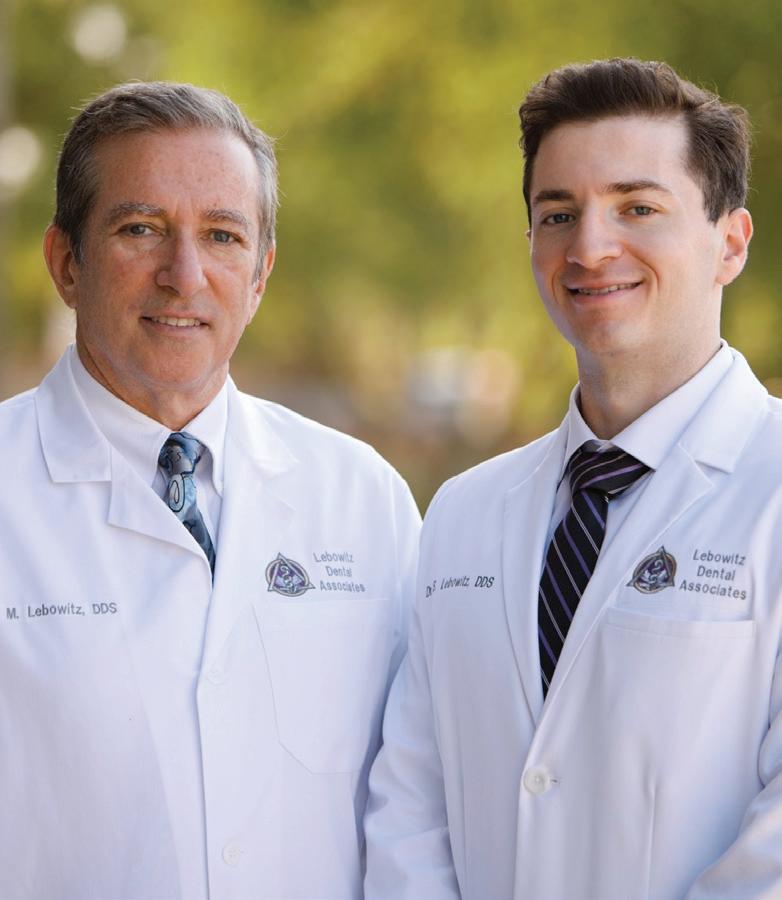
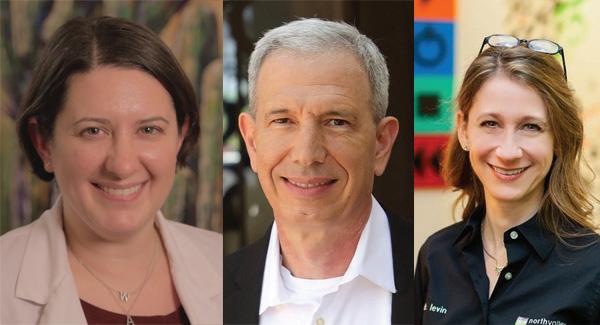
bands. The third important element is to “stay on track” with appointments.
Levin added that the American Association of Orthodontists “has a wonderful public-facing website, with many helpful resources for parents and patients.”
Pruzansky also emphasized that “compliance is the best determinant of outcome.” Clearly, Valley orthodontists think that when they say to do something, their patients should do it.
“Great oral hygiene, regular cleanings with your dentist, wearing elastics (and other appliances) as prescribed and not breaking braces will speed up your treatment and give you the best result,” Pruzansky said.
All of the doctors said their field continues to evolve with advancements in technology. Innovations such as 3D imaging, digital impressions and clear aligner systems make treatments more precise, comfortable, and aesthetically
pleasing. These advancements help deliver effective solutions tailored to each patient’s unique needs. It’s clear that orthodontists are important for dental health. Their expertise not only enhances smiles but also contributes to overall well-being by addressing functional issues and preventing future dental problems. As technology progresses and treatment options expand, the impact of orthodontists on our daily lives is set to grow even further, ensuring healthier, more beautiful smiles for generations to come. JN
For more information, visit Dr. Shawn M. Bader at facesorthodontics.com; Dr. Alyssa Levin at northvalleysmiles.com; and Dr. Dawn Pruzansky at thekidsdentalofficeofphoenix.com and ironwoodpediatricdentistry.com.
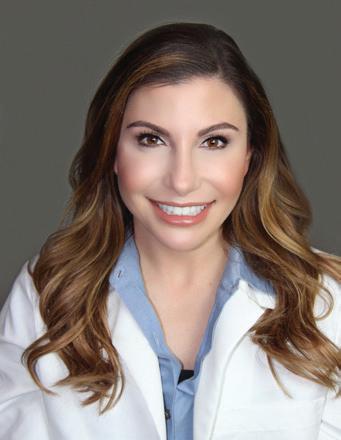



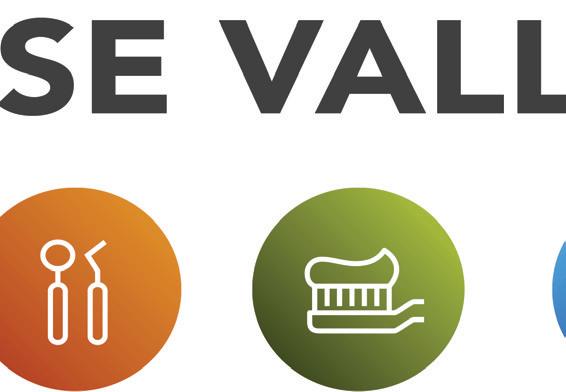
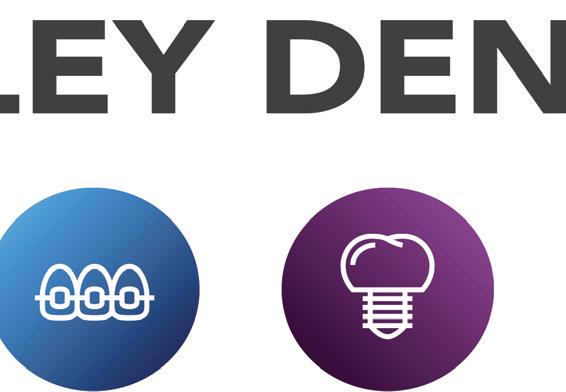
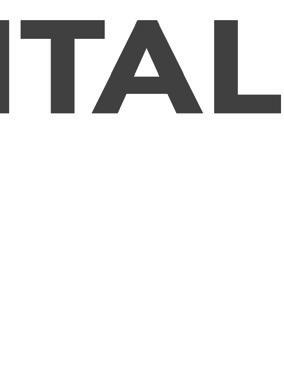
We believe that exceptional dental care goes beyond routine check-ups and procedures. It’s about creating an environment where trust, comfort, and quality are at the forefront of everything we do. Here’s what makes us di erent:
1. Personalized Care Without Pressure
Your dental health is personal, and so is our approach. When you visit our o ce, we take as much time as necessary to listen to and thoroughly diagnose your concerns. Our job is to provide options, and help you make the best decision possible. We believe in empowering our patients, not pressuring them. Our job is to guide you, ensuring that you feel confident and informed every step of the way.
2. Treating You as We Would Want to Be Treated
This isn’t just a saying—it’s one of our core values. We approach every treatment from a conservative perspective, always striving to preserve the natural integrity of the teeth. I often tell my patients, "I cannot improve on nature or God." We know that once a tooth is altered, it’s never the same. That’s why we stress the importance of prevention and only intervene when absolutely necessary. Every restoration has a lifespan, and the moment we begin treatment, the clock starts ticking. By taking a cautious approach, we aim to extend the life of your natural teeth for as long as possible.
3. Uncompromised Quality of Care Quality is at the heart of everything we
do. We provide the same high standard of dentistry that we would want for ourselves and our families. This commitment means that we are not constrained by what insurance companies dictate. We use only the best materials, supplies, and technology, regardless of what is covered in typical insurance formularies. While our fees may be higher, this investment reflects the quality of care you receive—the same quality we would want in our own mouths. The di erence in fee supports our choice to use the best labs, the finest materials, and the most advanced equipment available.
4. Thoughtful Investment in Technology
We are deliberate in the technology and equipment we bring into our practice. Each piece is carefully chosen to enhance the quality, e ciency, and predictability of our procedures. By investing in state-of-the-art diagnostic tools and treatment equipment, we ensure that you receive the most accurate and e ective care possible. We’ve invested in a CT scanner to aid in diagnostics, in powerful microscopes to greatly increase visibility during root canal treatments. The microscope drastically improves the quality of dental fillings and crowns. In intraoral scanner to minimize the discomfort of impression material, in a piezo surgical
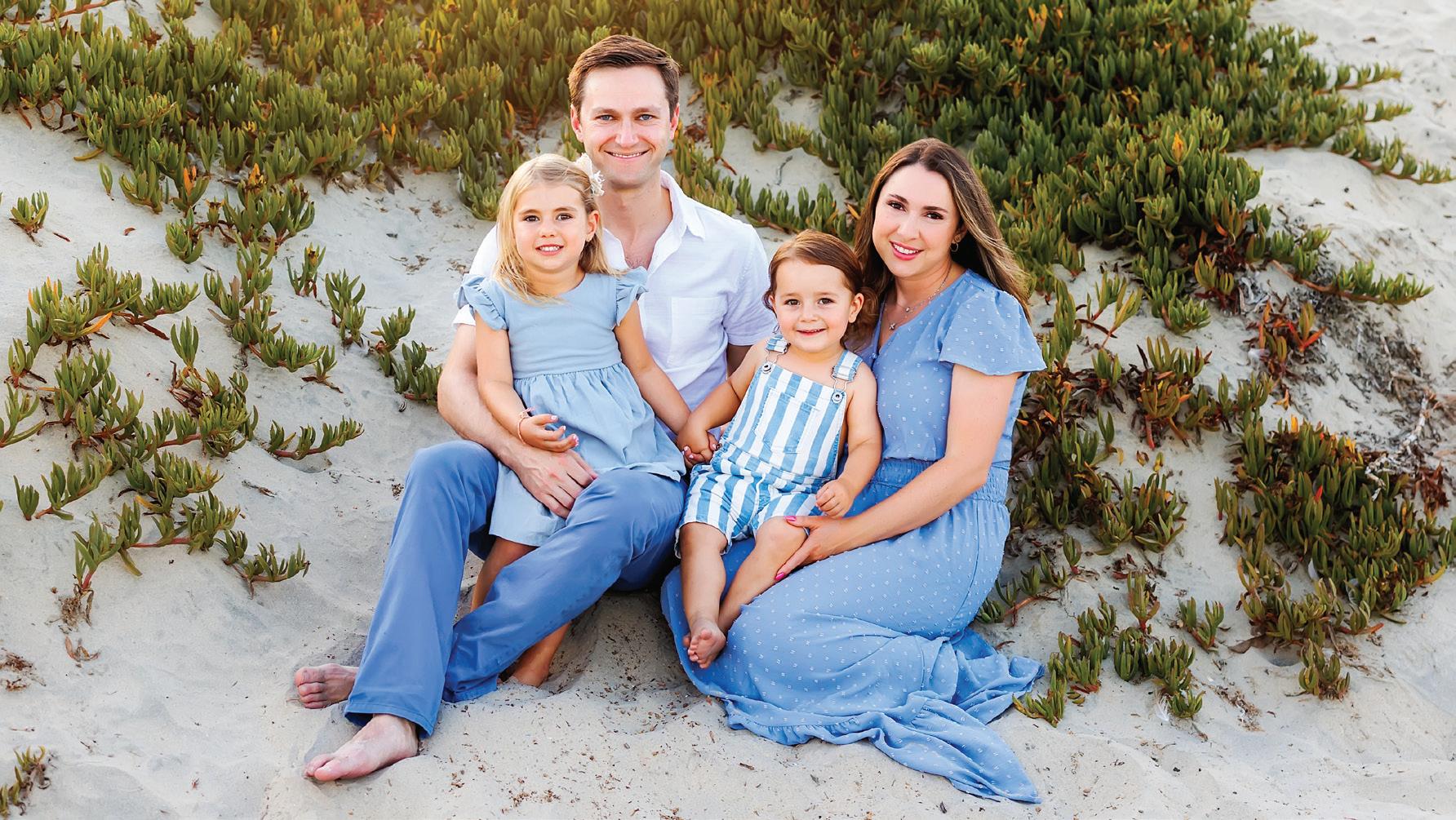

device to increase the predictability of surgery, in handheld, portable x-ray machines to decrease the amount of exposure you receive. In an X-Guide Navigation System, which is a dynamic navigation system that increases the precision, accuracy, angle, and safety of implant procedures.
5. Building Trust Through Long-Term Relationships
Trust is the cornerstone of our practice and another one of our core values. We have been serving the community, building relationships that span generations since the early 1980s. We are proud to have patients who have been with us for 10, 20, even 30 years. Some families are in their fourth, and one family is in their fifth generation of care with us. This longevity is a testament to the trust and confidence our patients place in us—a trust we work hard to earn every day.
Join Our Dental Family
At Paradise Valley Dental we don’t just treat teeth—we build lasting relationships based on trust, respect, and uncompromised care. Experience the di erence for yourself. Schedule your appointment today and become part of our dental family, where we focus on beautiful and medically necessary dental care.
Visit us at ParadiseValleyDental.com, call us, or text us at (480) 998-7775 to join our practice. We look forward to welcoming you!

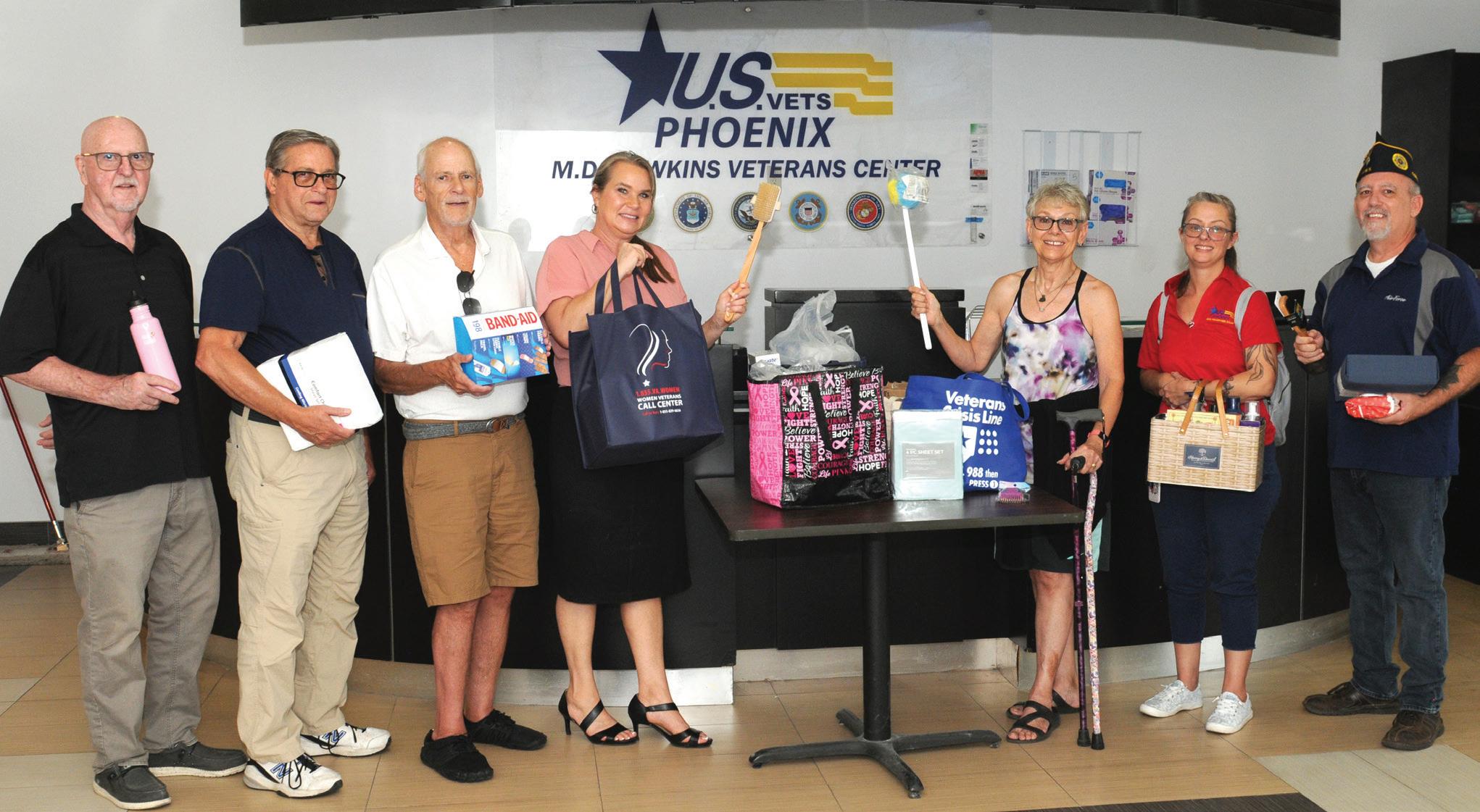
Jewish War Veterans Copper State Post 619 officers and board members visit U. S. Vets – Phoenix to donate items to Ashley’s Place, a program that provides a safe and sober living environment for women with children. Pictured from left are Michael

Livia Sklar took a quick break from her two-month stint volunteering in Israel to enjoy the Jerusalem
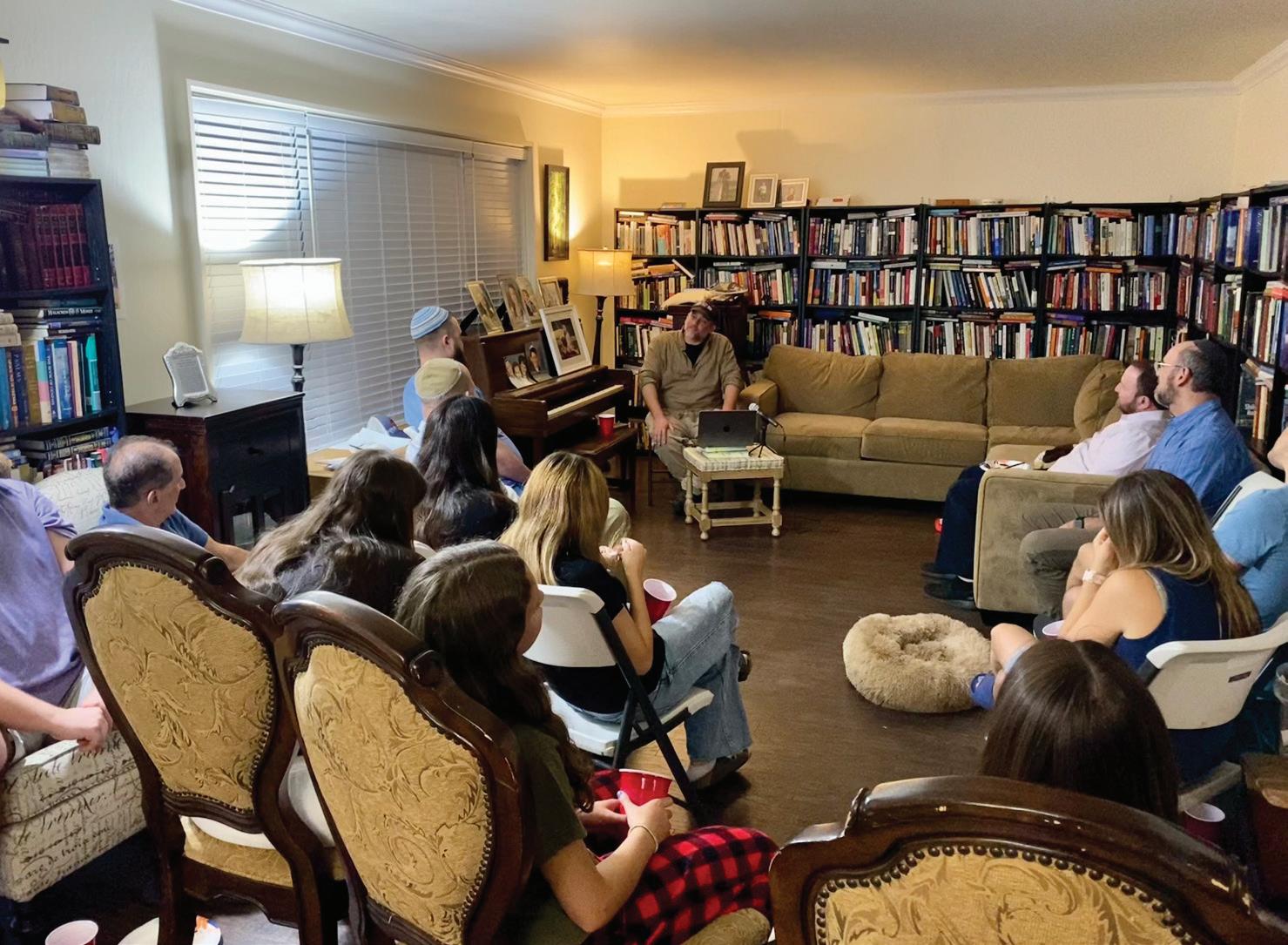
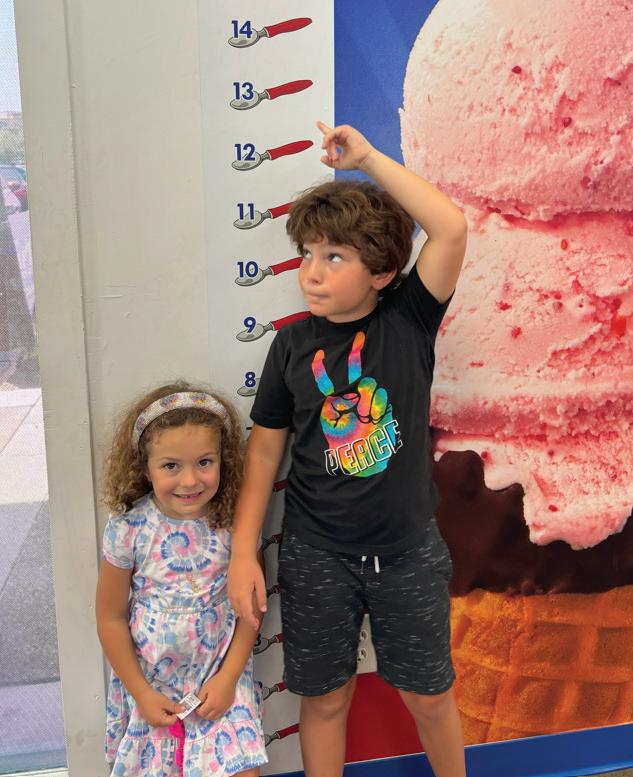

It’s never too early to start teaching financial sense, according to Mark Khazanovich and Inna Korenzvit of KORE Accounting Solutions. Khazanovich is pictured talking to Shemesh campers during their 2024 career day at the Valley of the Sun Jewish Community Center.
by 10 a.m. Monday.
THURSDAY, SEPT. 5
‘Star Trek,’ the Road to Recovery and Reconciling with my Father: 7-8:30 p.m. Online and in person at Beth El Phoenix, 1118 W. Glendale Ave., Phoenix. Join Valley Beit Midrash and Beth El for a book talk with Adam Nimoy, son of Leonard Nimoy. For more information, visit valleybeitmidrash.org.
FRIDAY, AUG. 23
Open House: 5:15 p.m. Temple Emanuel of Tempe, 5801 S. Rural Road, Tempe. Join Temple Emanuel and learn about its clubs, communities and activities, meet the rabbi and get information on its religious school. Includes familyfriendly games, prizes and food. Cost: Free. For more information, visit shorturl.at/A4HaF.
Blessing of the Backpacks: 6-7 p.m. Congregation Or Tzion, 16415 N. 90th St., Scottsdale. Join Congregation Or Tzion for a back-to-school blessing community project. Donate new backpacks, lunch bags and water bottles for children in need. For more information, visit congregationortzion.org.
SATURDAY, AUG. 24
Kids Night Out-Splash into School: 5-8 p.m. Valley of the Sun Jewish Community Center, 12701 N. Scottsdale Road, Scottsdale. Join the VOSJCC for a kid’s night out for grades pre-K through 8 with a back-to-school theme, games, a movie, pizza and more. Cost: Free for members, $50 for guests; registration closes on Aug. 21. For more information, visit vosjcc.org/ program/kno.
WEDNESDAY, AUG. 28
Parenting Pop-Up: Brains, Beads and Bracelets, Oh My!: 6:30-8:30 p.m. Valley of the Sun Jewish Community Center, 12701 N. Scottsdale Road, Scottsdale. Join the VOSJCC to learn how to translate misbehavior so that you can teach your child important social skills. Workshop includes bracelet making. For parents of children ages 3 through 7. Cost: $36 for JCC members, $54 non-,members. For more information, visit vosjcc.org/program/parenting-pop-upbrains-beads-and-bracelets-oh-my.
THURSDAY, AUG. 29
Author Event: 6:30 p.m. Changing Hands Bookstore, 300 W. Camelback Road, Phoenix. Join local author and former newspaper journalist Mark Hass as he shares his latest novel, “The Days Before Tomorrow,” which follows a young Ukrainian Jewish boy’s journey to adulthood from the interwar years through Hitler’s rise to power. For more information, visit changinghands.com/event/august2024/mark-hass.
SUNDAY, SEPT. 1
Free Lunch & Event: 12:30 p.m. Third Shot Coffee & Acai, 3106 Gateway Blvd #400, Prescott. Join Holocaust survivor Esther Basch as she shares her story of hope and inspiration. For more information, visit honeygirlfilms.org.
THURSDAY, SEPT. 5
Cocktails with a Macher: 6-7:30 p.m. North Scottsdale address provided upon registration. Join the Center for Jewish Philanthropy of Greater Phoenix’s Ben-Gurion Society for an evening of wine and cheese with David and Robert Weiner. Cost: $36 per person, with Ben-Gurion Society annual gift. For more information, visit phoenixcjp.regfox.com/ cocktails-with-a-macher.
FRIDAY, SEPT. 6
Comedy with a Twist of Trauma: 7:30-9:30 p.m. Scottsdale location provided after ticket purchase. Join 3GAZ and Gesher Disability Resources for an evening of comedy by Pamela Schuller. Cost: $36 per person, $76 per person VIP. For more information, visit phoenixhsa.formstack.com/ forms/3g_comedy_with_a_twist.
SUNDAY, SEPT. 8
Back-to-School Clothes Swap: 10 a.m. The New Shul, 1825 E. Paradise Lane, Scottsdale. Bring your used clothes and shoes and leave with the next size up. Clothes for ages 18 and under. For more information and to RSVP, contact kutychiropractic@yahoo.com.
Wine Tasting and Education FUNdraiser: 3:30 p.m. Congregation Or Tzion, 16415 N. 90th St., Scottsdale. Join Congregation Or Tzion for a wine tasting with Los Milics Vineyards with 15% of the wine sales donated to COT. Cost: $18 members, $25 non members; register by Sept. 2. For more information, visit otaz.org/wine.
CTeen Kickoff: 7-9 p.m. CTeen Lounge, 1940 E. Camelback Road #206, Phoenix. Join CTeen at its new lounge, a welcoming space for all teenagers, for food, entertainment and an airbrush artist. Cost: Free. For more information, visit cteenphoenix.com/events/kickoff-new.
SUNDAYS
B.A.G.E.L.S: 9-11 a.m.; last Sunday of the month. Valley of the Sun Jewish Community Center, 12701 N. Scottsdale Road, Scottsdale. Grab a bagel and a cup of coffee at Bagels And Gabbing Every Last Sunday and enjoy some time with your friends and make new ones. You must register to attend. Bagels and coffee will be provided. Cost: Free for members, $5 for guests. For more information and to register, visit vosjcc.org.
THURSDAYS
Storytime at Modern Milk: 9:30 a.m. Modern Milk, 13802 N. Scottsdale Road, #163, Scottsdale. Storytime for babies, toddlers and preschoolers. Integrates children’s books and songs while giving parents new ideas for play. Cost: $5. For more information and to register, visit modernmilk.com/after-baby.
SUNDAYS
Chassidus Class: 9 a.m. Online. Learn about the Chasidic movement with Rabbi Yossi Friedman. Use this link: ChabadAZ.com/LiveClass. Cost: Free. For more information, visit chabadaz.com.
Jewish War Veterans Post 210: 10 a.m. Online. Any active duty service member or veteran is welcome to join monthly meetings, every third Sunday. Cost: Free. For more information, email Michael Chambers at c365michael@yahoo.com.
Sundays are for the Family Weekly Feed: 3-5 p.m. Tempe Beach Park, 80 W. Rio Salado Pkwy., Tempe. Join Arizona Jews for Justice and AZ HUGS for the Houseless every Sunday to serve food to those in need. For more
information and to RSVP, email Arizonajews4justice@gmail.com.
MONDAYS
Mahjong: 1:30-3:30 p.m. East Valley Jewish Community Center, 908 N. Alma School Road, Chandler. Come play mahjong each week. For all levels. Cost: Free; registration required at evjcc.org/mahjong.
Quotable Quotes by our Sages: 7 p.m. Online. Learn with Rabbi Shlomy Levertov. Use this link: JewishParadiseValley.com/class. Cost: Free. For more information, visit chabadaz. com.
Torah & Tea: 7:30 p.m. Online. Learn with Rabbi Yossie Shemtov. Cost: Free. For more information, visit Facebook.com/ChabadTucson.
Single Parent Zoom: 8 p.m. First and third Monday of every month. Join The Bureau of Jewish Education’s Family University single parents’ group for those looking to form friendships and build their support system with likeminded people. For more information or to register, visit bjephoenix.org/family-university.
TUESDAYS
Let’s Knit: 1:30 p.m. Ina Levine Jewish Community Campus, 12701 N. Scottsdale Road, Scottsdale. Share the pleasure of knitting, crocheting, etc. outside the social hall in the campus. Can’t knit? They will teach you! Every level welcome. Cost: Free. For more information, visit vosjcc.org.
Torah Studies: 7:30 p.m. Online. Learn with Rabbi Mendy Levertov. Use this link: ourjewishcenter.com/virtual. Cost: Free. For more information, visit chabadaz.com.
WEDNESDAYS
Torah Study with Temple Beth Shalom of the West Valley: 11 a.m.-12:30 p.m. Online. Weekly study group explores that week’s portion and studies different perspectives and debates the merits of various arguments. Intended for adults, Torah study is open to students of all levels. For more information, contact the TBS office at 623-977-3240.
Happiness Hour: 11:30 a.m. Online. Class taught by Rabbi Pinchas Allouche that delves into texts and references culled from our traditions to address a relevant topic. For more information or to join, visit cbtvirtualworld.com.
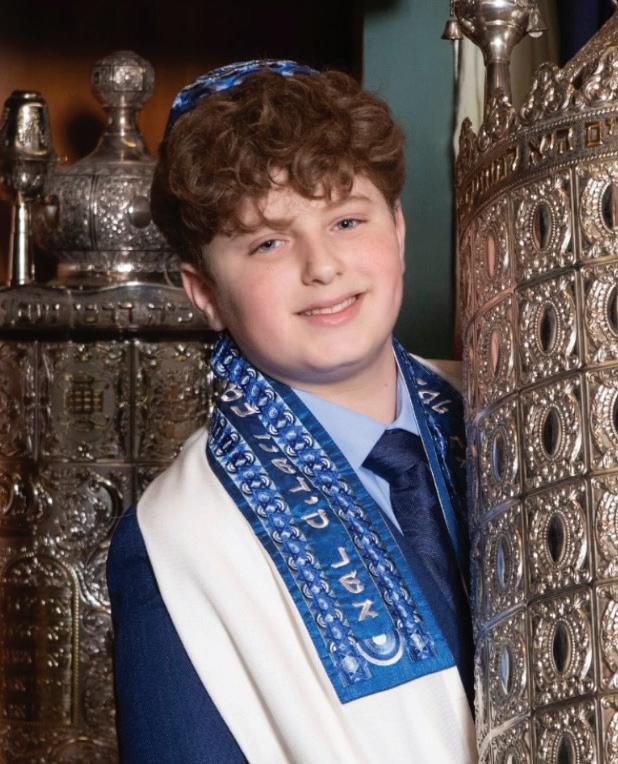

Lunch & Learn: 12 p.m. Online. Grab some food and learn with Rabbi Yehuda Ceitlin. Use this link: Facebook.com/ChabadTucson. Cost: Free. For more information, visit chabadtucson.com.
Torah Study with Chabad: 12 p.m. Online. Take a weekly journey of Torah with Rabbi Yossi Levertov. Cost: Free. For more information, visit chabadaz.com.
History of the Jews: 7 p.m. Online. Learn the Jewish journey from Genesis to Moshiach with Rabbi Ephraim Zimmerman. Use this link: zoom.us/j/736434666. Cost: Free. For more information, visit chabadaz.com.
JACS: 7:30-8:30 p.m. Online. Zoom support group for Jewish alcoholics, addicts and their friends and family on the first and third Wednesdays of the month. Cost: Free. For more information, email jacsarizona@gmail. com or call 602-692-1004.
THURSDAYS
Ladies Torah & Tea: 10:30 a.m. Online. Learn about the women of the Torah with Mrs. Leah Levertov. Use this link: ourjewishcenter.com/ virtual. Cost: Free. For more information, visit chabadaz.com.
The Science of Everything: 11 a.m. Online. Explore the most fundamental work of Chassidut: the Tanya, with Rabbi Boruch. Use this link: zoom.us/j/736434666. Cost: Free. For more information, visit chabadaz.com.
Weekly Mahjong: 1-3 p.m. Temple Solel, 6805 E. McDonald Drive, Paradise Valley. Join Temple Solel each Thursday afternoon for mahjong. Lessons available for beginners. Cost: Free. RSVP via email to dottiebefore@gmail.com so they know how many tables to set up.
SATURDAYS
Saturday Mindfulness Gatherings: 9:30 a.m. Online. Hosted by Hospice of the Valley. To join by phone, dial 1-253-215-8782, meeting ID 486 920 2119#. To get the Zoom link or for more information, contact Gill Hamilton at ghamilton@hov.org or 602-748-3692.
Book Discussion: 1:30-2:30 p.m. Online. Join Or Adam Congregation for Humanistic Judaism on the third Saturday of every month for a book discussion. For more information and to register, contact oradaminfo@gmail.com. JN
KODY JAYMES HAYDEN LIMMER
Kody Jaymes Hayden Limmer became a bar mitzvah on May 4, 2024, at Congregation Beth Tefillah. He is the son of Adam and Amy Limmer of Scottsdale.
Kody’s grandparents are Ronald and Andrea Goldberg of Leawood, Kansas; and Howard and Miriam Limmer of Scottsdale.
A student at Scottsdale Preparatory Academy, Kody enjoys playing basketball at his school. JN









